Concrete offers a surprisingly versatile and durable medium for transforming your outdoor space into a modern sanctuary. Far from being cold and industrial, this material can be molded, textured, and colored to create everything from sleek pathways to organic-looking planters. Whether you're aiming for a minimalist aesthetic, a rustic charm, or a contemporary retreat, concrete garden elements provide a solid foundation for stunning landscape design. These ideas showcase how concrete can be used to add structure, functionality, and artistic flair, proving its place as a key component in enhancing your garden's overall aesthetic and appeal.
1. Poured Concrete Garden Patio
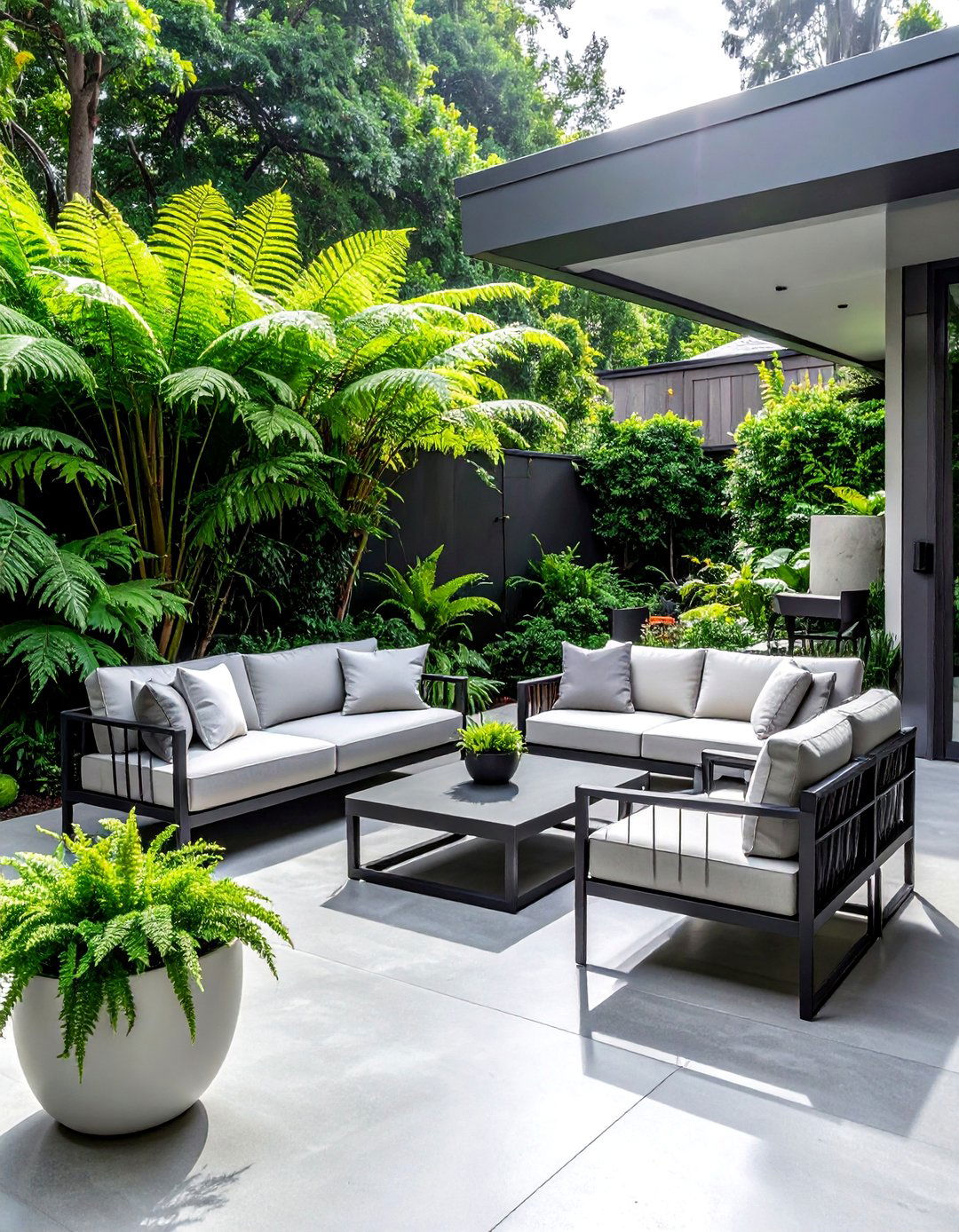
A poured concrete garden patio serves as a sleek and durable foundation for any outdoor living area. This approach creates a seamless, uniform surface that is perfect for minimalist and contemporary designs. Unlike pavers or stones, a poured patio has no grout lines, which means less maintenance and fewer weeds to manage. The surface can be finished in various ways, from a smooth, polished look to a brushed texture for added slip resistance. Its clean lines and solid presence provide a perfect neutral backdrop for vibrant patio furniture, lush container plants, and other decorative elements, making it a highly functional and stylish choice.
2. Stamped Concrete Garden Walkway
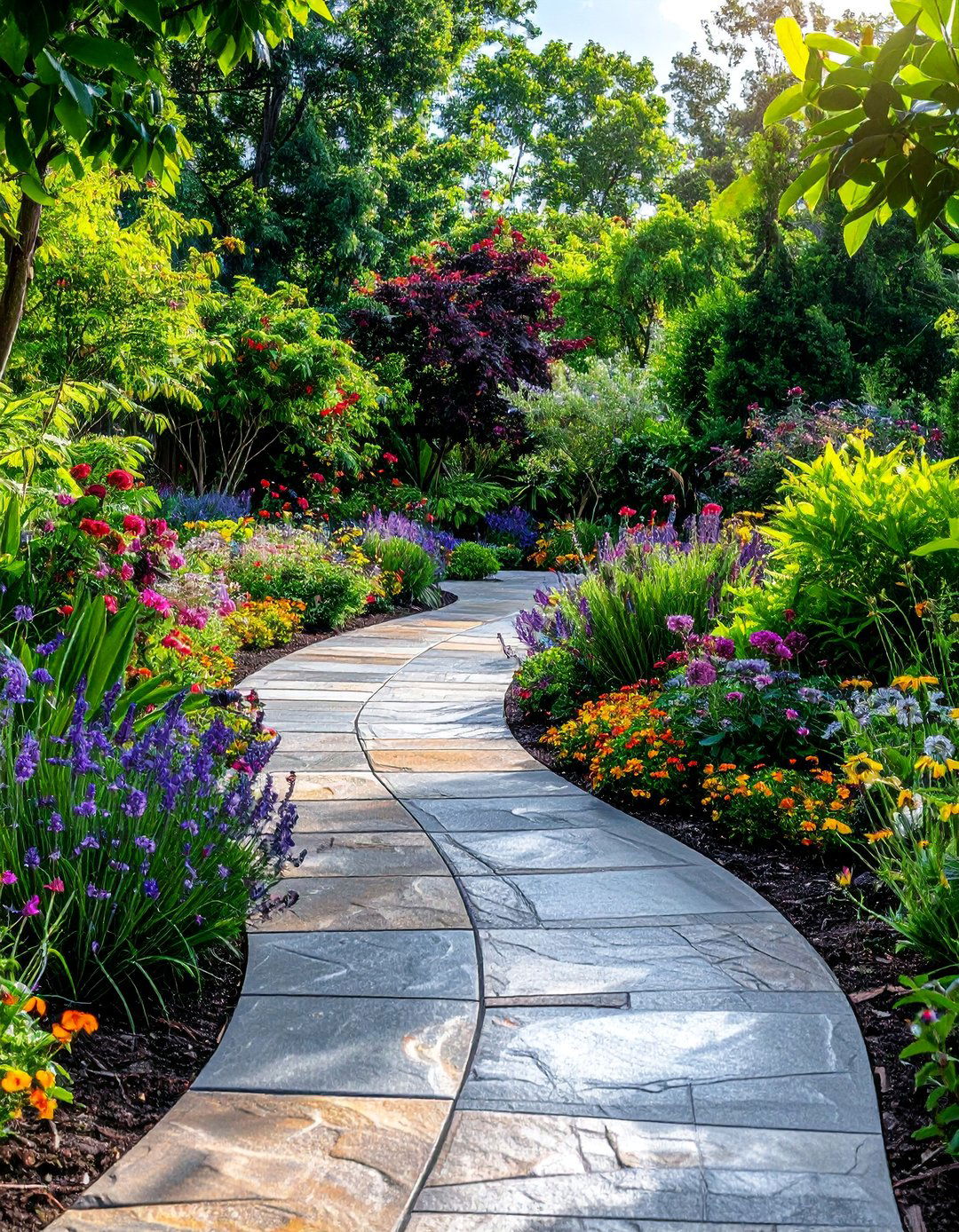
For a pathway that combines durability with decorative appeal, a stamped concrete garden walkway is an excellent choice. This technique involves pressing molds into freshly poured concrete to replicate the look of more expensive materials like slate, brick, flagstone, or even wood planks. The result is a textured, visually interesting path that guides visitors through your garden with elegance. You can further customize the look with various color additives and release agents to create depth and realistic shading. This method offers a cost-effective way to achieve a high-end, customized appearance that withstands heavy foot traffic and harsh weather conditions with minimal upkeep.
3. Concrete Garden Retaining Wall
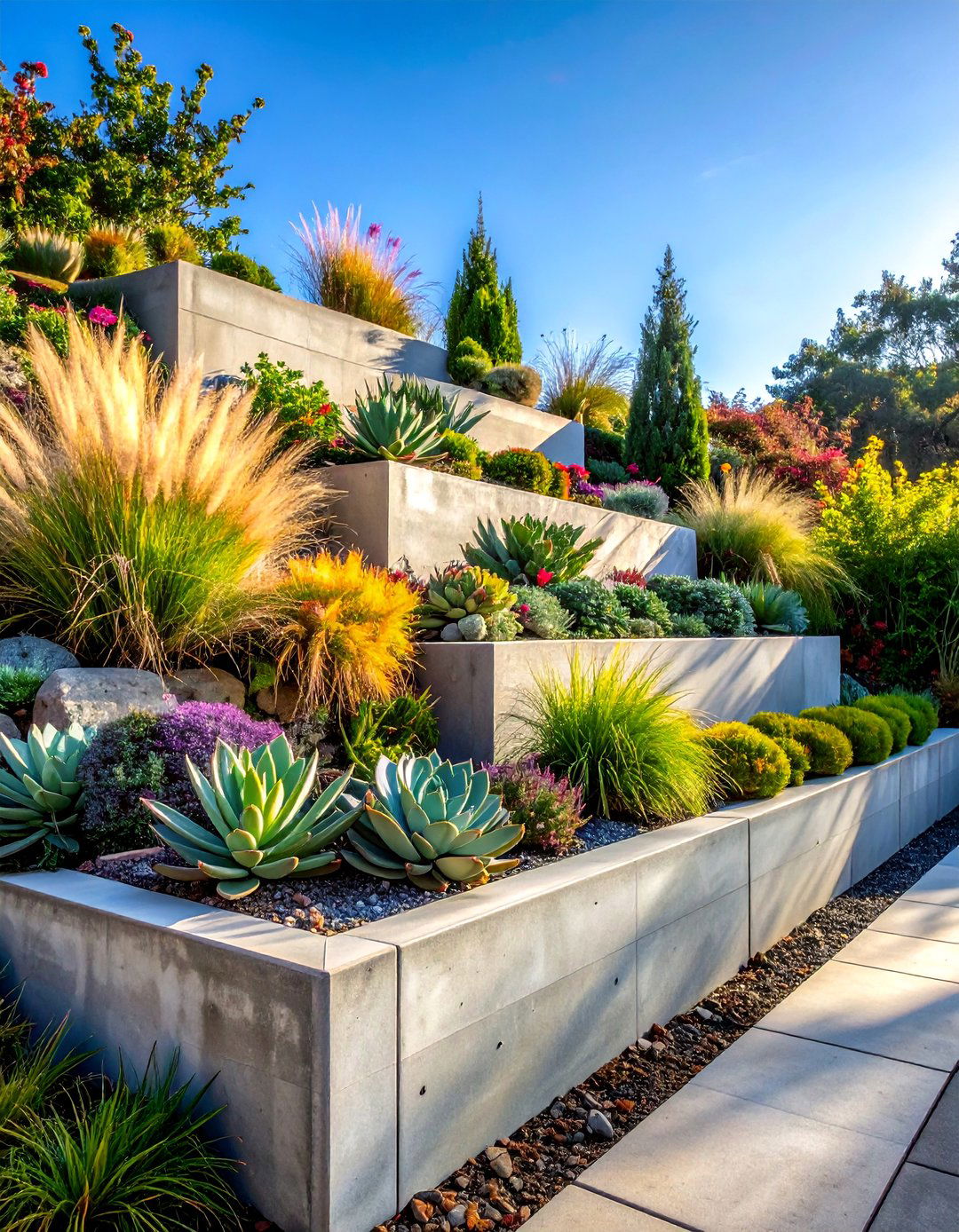
A concrete garden retaining wall is a powerful tool for managing slopes and creating terraced levels in your landscape. These functional structures prevent soil erosion while adding a strong architectural element to the garden. Whether you opt for smooth, poured concrete walls for a modern feel or use stacked concrete blocks for a more traditional look, the effect is dramatic. The flat top surface of the wall can also serve as extra seating or a display area for potted plants. Integrating lighting into the wall design can further enhance the garden's ambiance, highlighting the texture of the concrete and the plants above it.
4. Modern Concrete Garden Bench
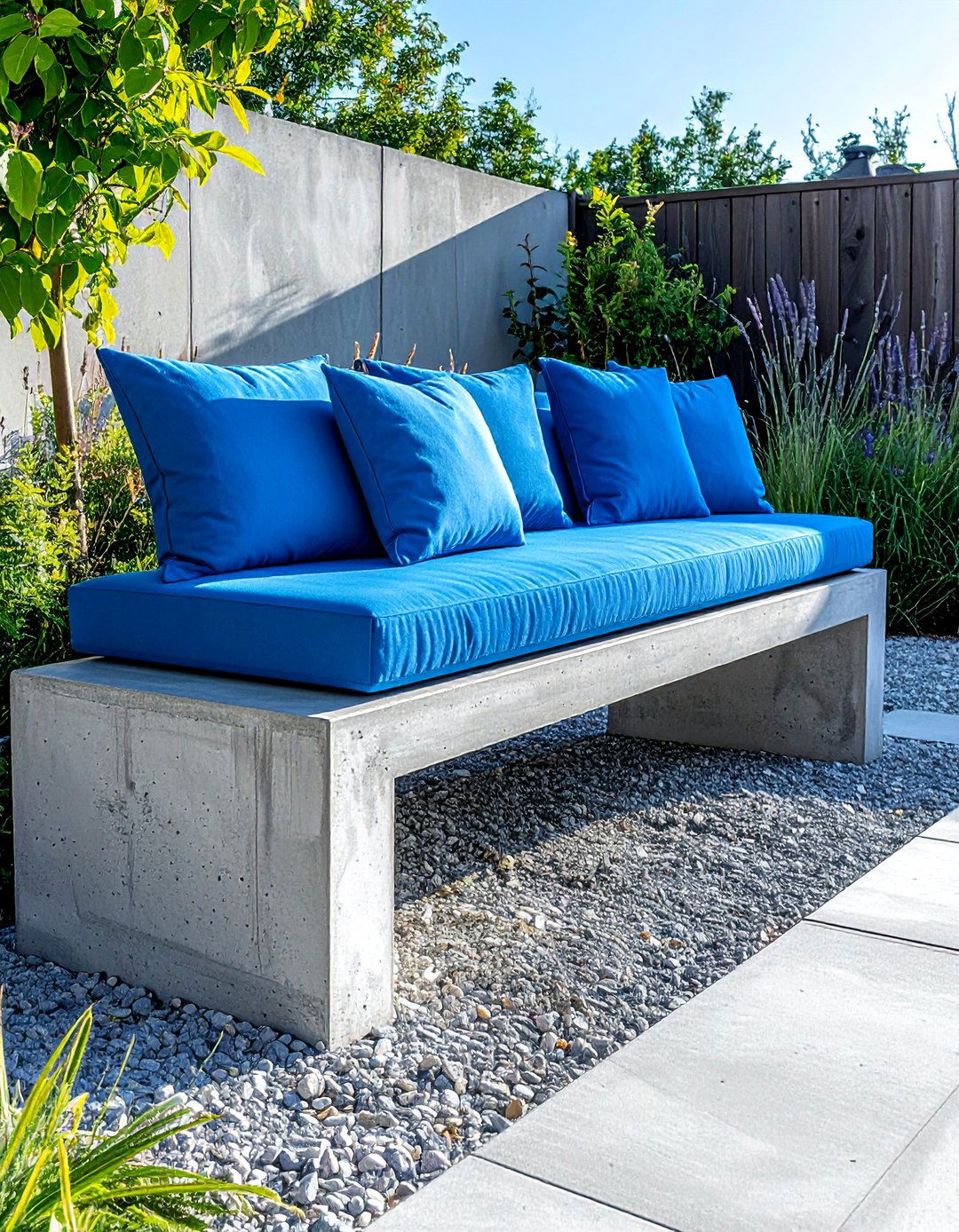
Incorporating a modern concrete garden bench offers a permanent and stylish seating solution that blends seamlessly into the landscape. These benches can be pre-cast or poured in place, often featuring clean lines, geometric shapes, and a minimalist aesthetic. Their robust nature means they are completely weatherproof and require virtually no maintenance. You can soften the look by adding outdoor cushions or placing the bench near lush plantings. Combining concrete with wood elements, such as a wooden seat on a concrete base, creates a beautiful contrast of textures and materials, adding warmth to the cool, solid form of the bench.
5. DIY Concrete Garden Planters
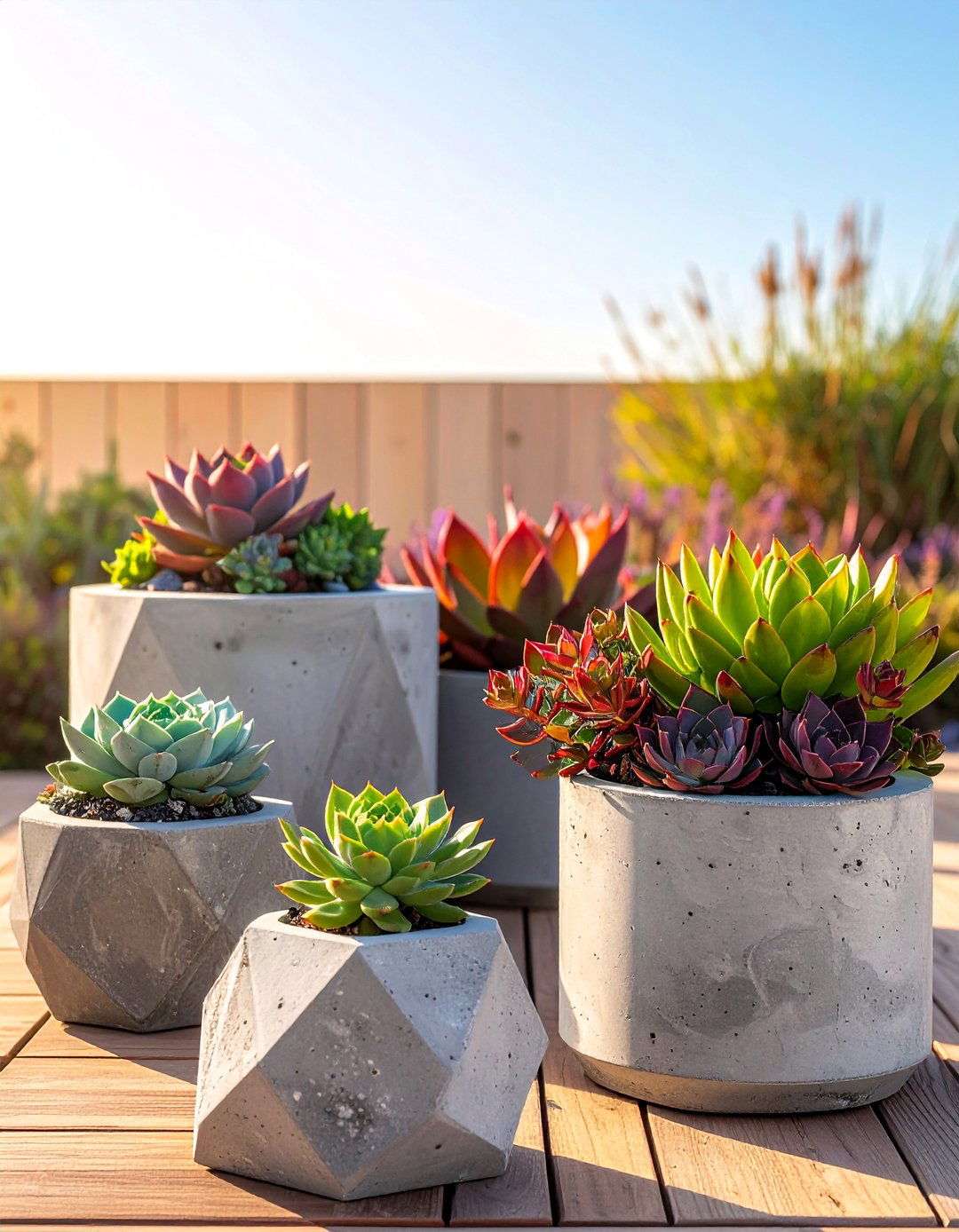
Creating your own DIY concrete garden planters allows for complete customization in size, shape, and style to fit your specific needs. Using simple molds made from plastic containers, cardboard boxes, or custom-built forms, you can craft unique vessels for your favorite plants. The raw, industrial look of concrete provides a striking contrast to the soft, organic textures of foliage and flowers. You can leave the planters in their natural grey state, paint them, or even embed mosaic tiles or stones into the surface while the concrete is still wet. These durable planters are perfect for succulents, herbs, or small shrubs and add a personal touch.
6. Geometric Concrete Garden Stepping Stones
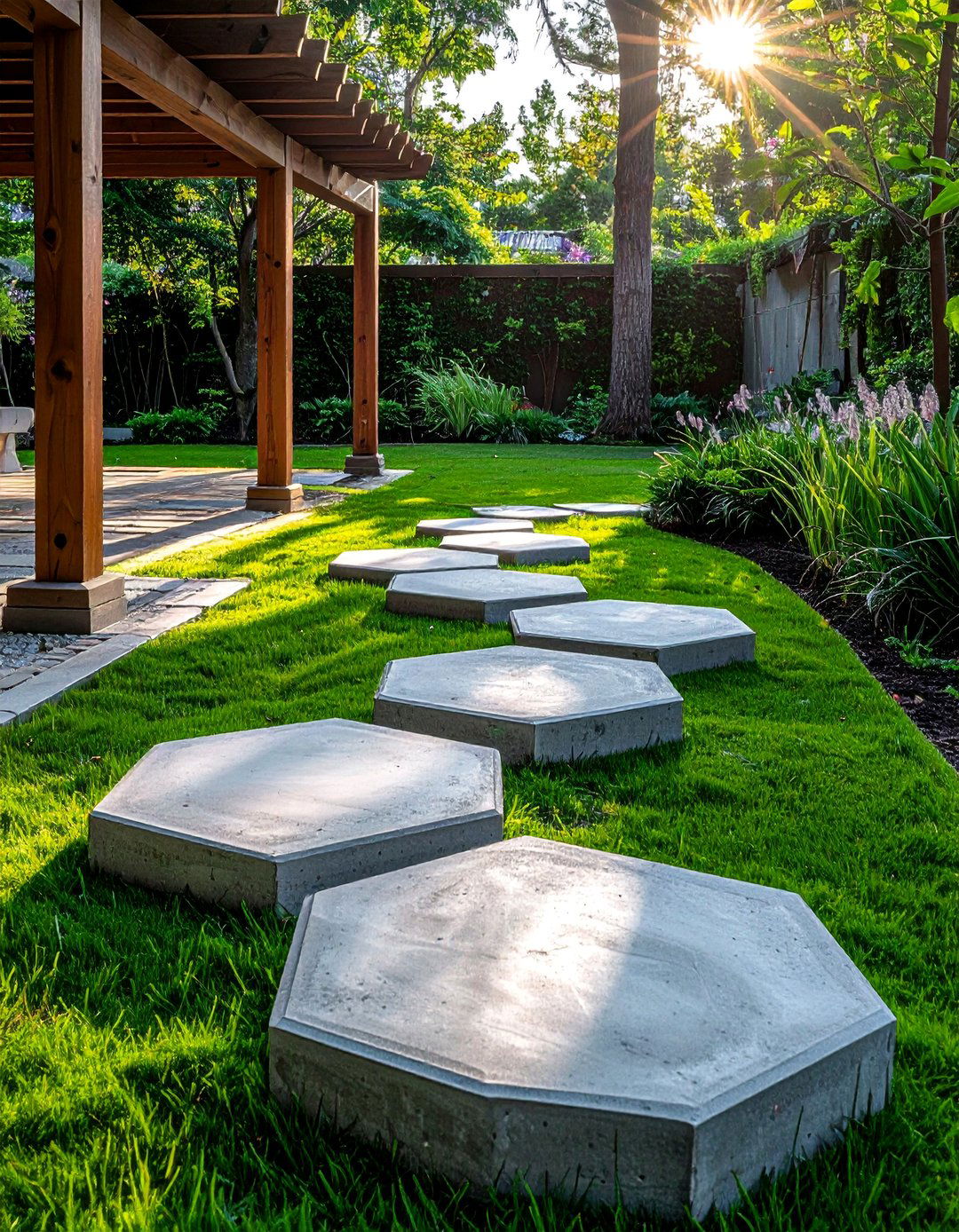
Geometric concrete garden stepping stones offer a contemporary twist on the traditional garden path. Instead of rounded, natural-looking stones, opt for crisp shapes like hexagons, squares, or triangles to create a structured and visually engaging walkway. These stones can be laid out in a straight line for a formal look or arranged in a more playful, scattered pattern. Spacing them apart and allowing grass or ground cover to grow between them softens their appearance and integrates them into the lawn. The clean edges and simple forms of geometric stones add a touch of modern sophistication to any garden design.
7. Concrete Garden Water Feature
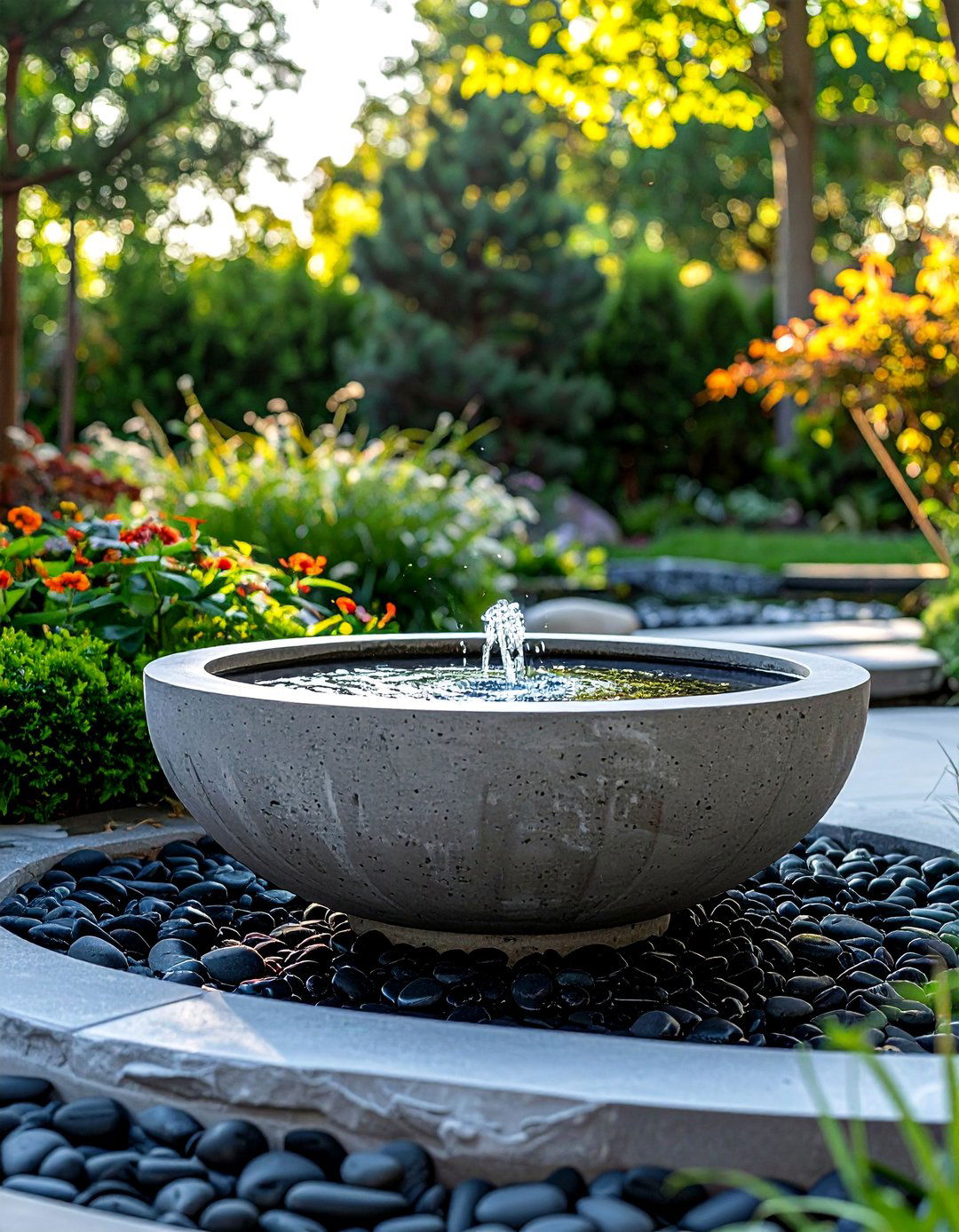
A concrete garden water feature can become a stunning focal point, bringing the soothing sound and movement of water into your outdoor space. Concrete's ability to be molded into any shape makes it ideal for creating custom fountains, basins, and reflecting pools. A simple bowl-shaped fountain can exude minimalist elegance, while a multi-tiered structure can create a more dramatic effect. The smooth, cool surface of the concrete contrasts beautifully with the fluidity of the water. For a modern design, consider a sheer descent feature where water flows smoothly over a flat concrete edge into a hidden reservoir below.
8. Integrated Concrete Garden Fire Pit
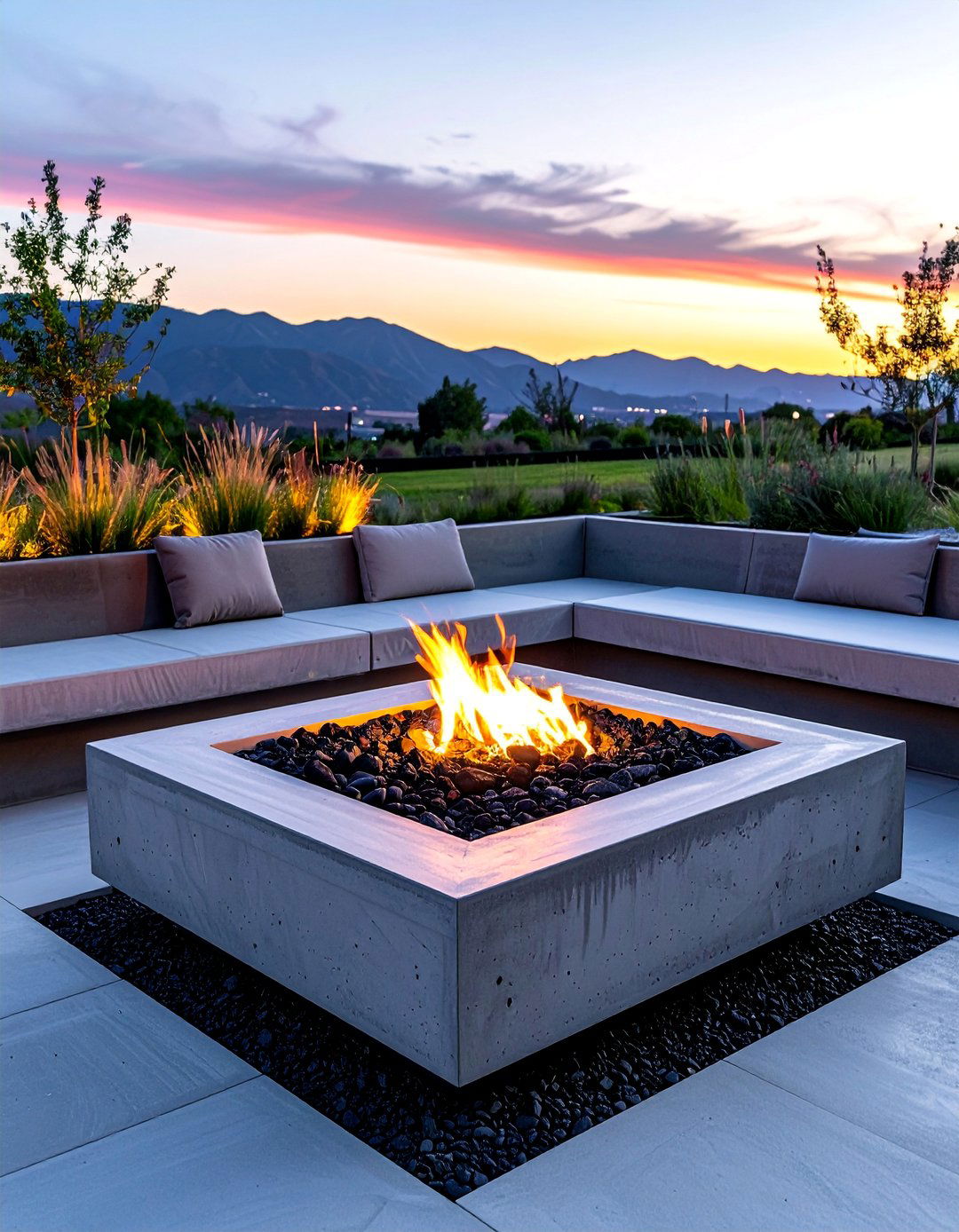
An integrated concrete garden fire pit provides a chic and permanent gathering spot for cool evenings. Poured in place or constructed from pre-cast blocks, a concrete fire pit offers exceptional durability and heat resistance. It can be designed in various shapes, such as a classic circle, a modern square, or a long rectangle that doubles as a communal table. The surrounding patio can be made of the same concrete for a cohesive look, creating a dedicated zone for socializing and relaxation. This feature not only provides warmth and light but also adds a strong architectural element that anchors your outdoor living space.
9. Board-Formed Concrete Garden Walls
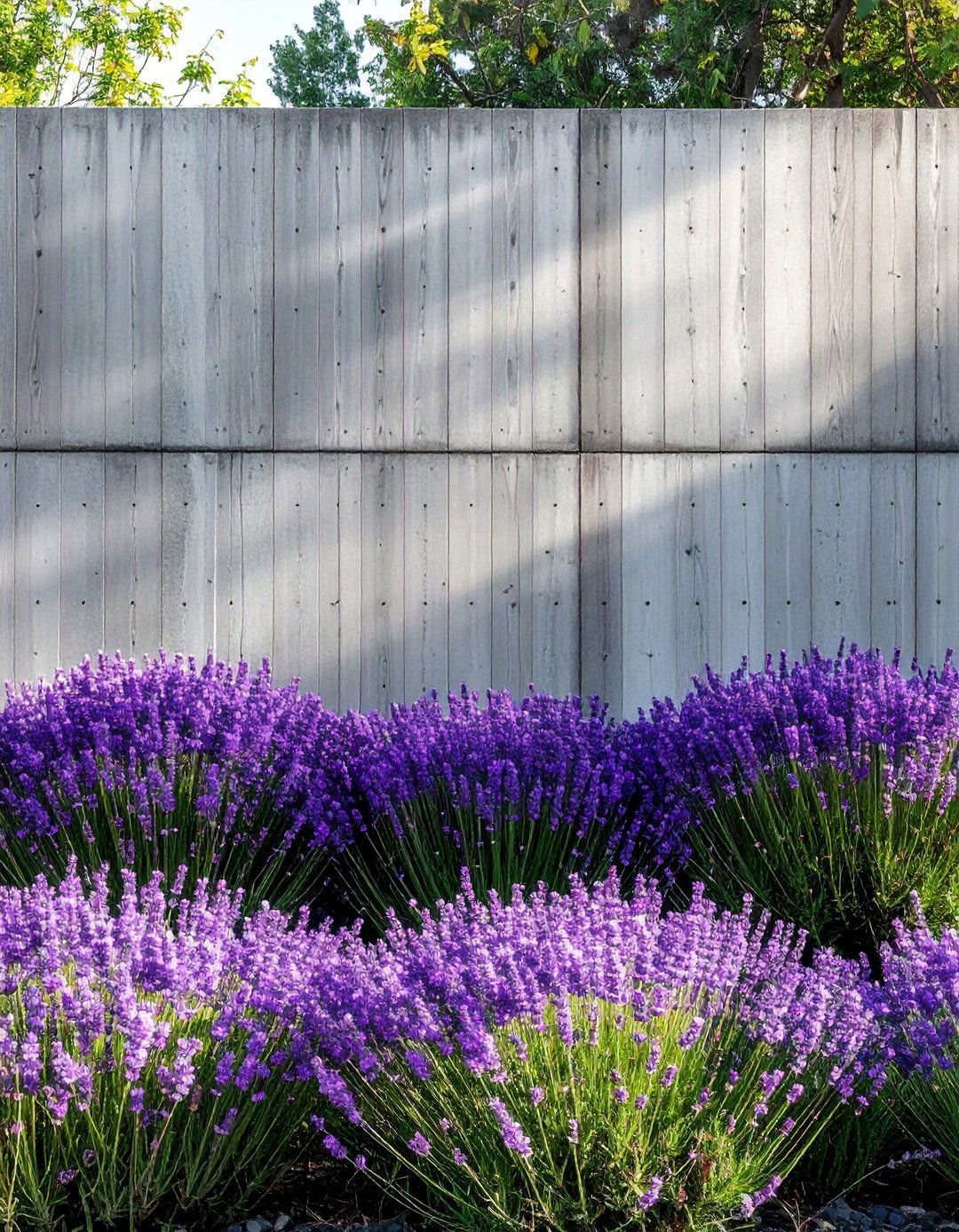
Board-formed concrete garden walls introduce a unique textural element to the landscape. This technique involves pouring concrete into a formwork made of wooden planks. When the forms are removed, the concrete retains the grain and texture of the wood, creating a surface that is both rustic and modern. These walls are perfect for defining garden boundaries, creating privacy screens, or serving as a backdrop for a planting bed. The subtle yet distinct pattern adds visual interest and warmth, softening the typically industrial feel of concrete and blending it more naturally with the surrounding organic elements of the garden.
10. Concrete Garden Spheres as Accents
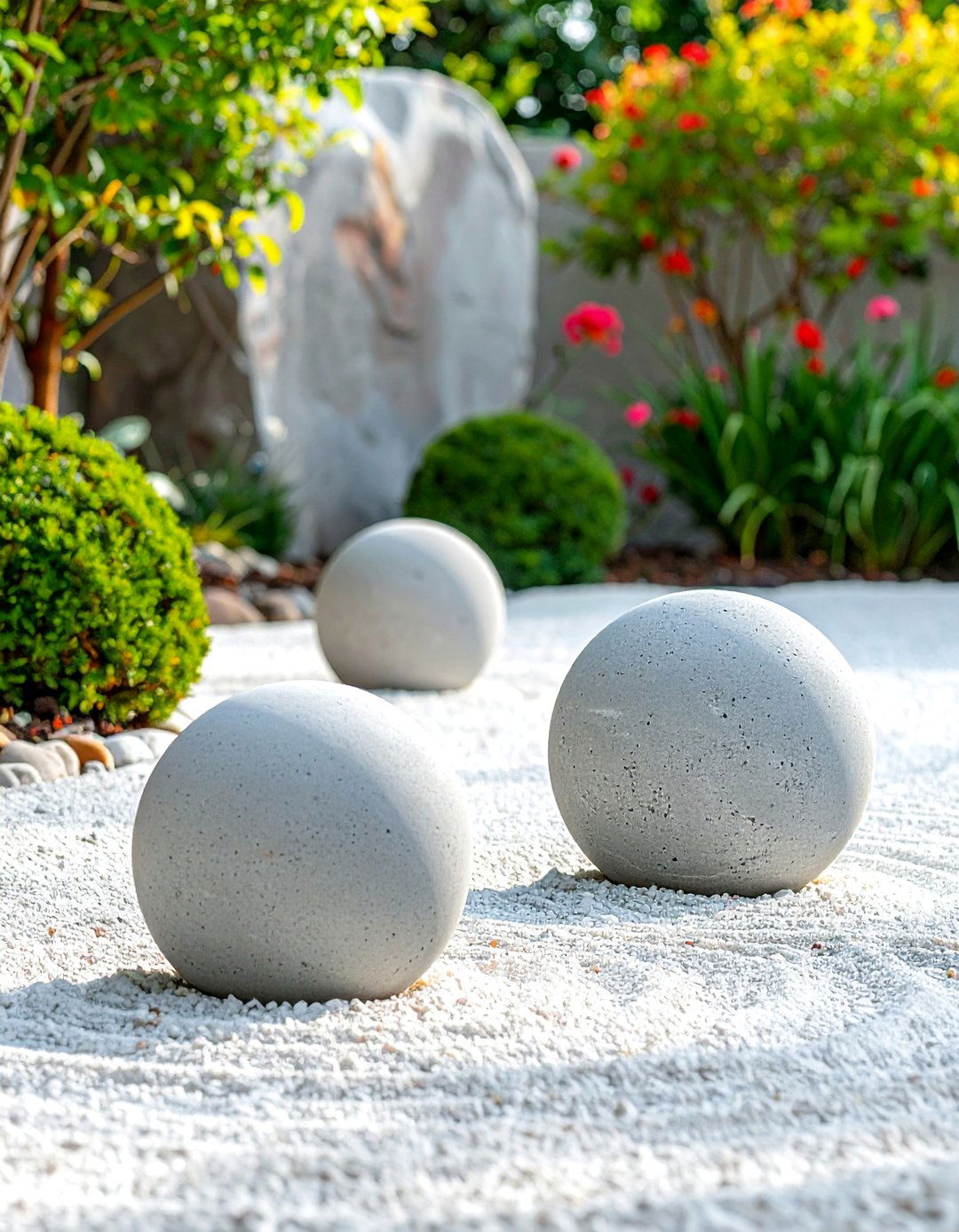
Placing concrete garden spheres as accents throughout your landscape adds a touch of artistic whimsy and sculptural interest. These orbs can be purchased or made using spherical molds and come in various sizes. Grouping several spheres of different dimensions together can create a dynamic focal point in a flower bed or on a gravel patch. Their smooth, rounded form provides a pleasing contrast to the spiky or soft textures of plants. Left in their natural grey state, they offer a modern, minimalist vibe, but they can also be painted or stained to match your garden's color scheme for a more playful look.
11. Polished Concrete Outdoor Kitchen Countertops
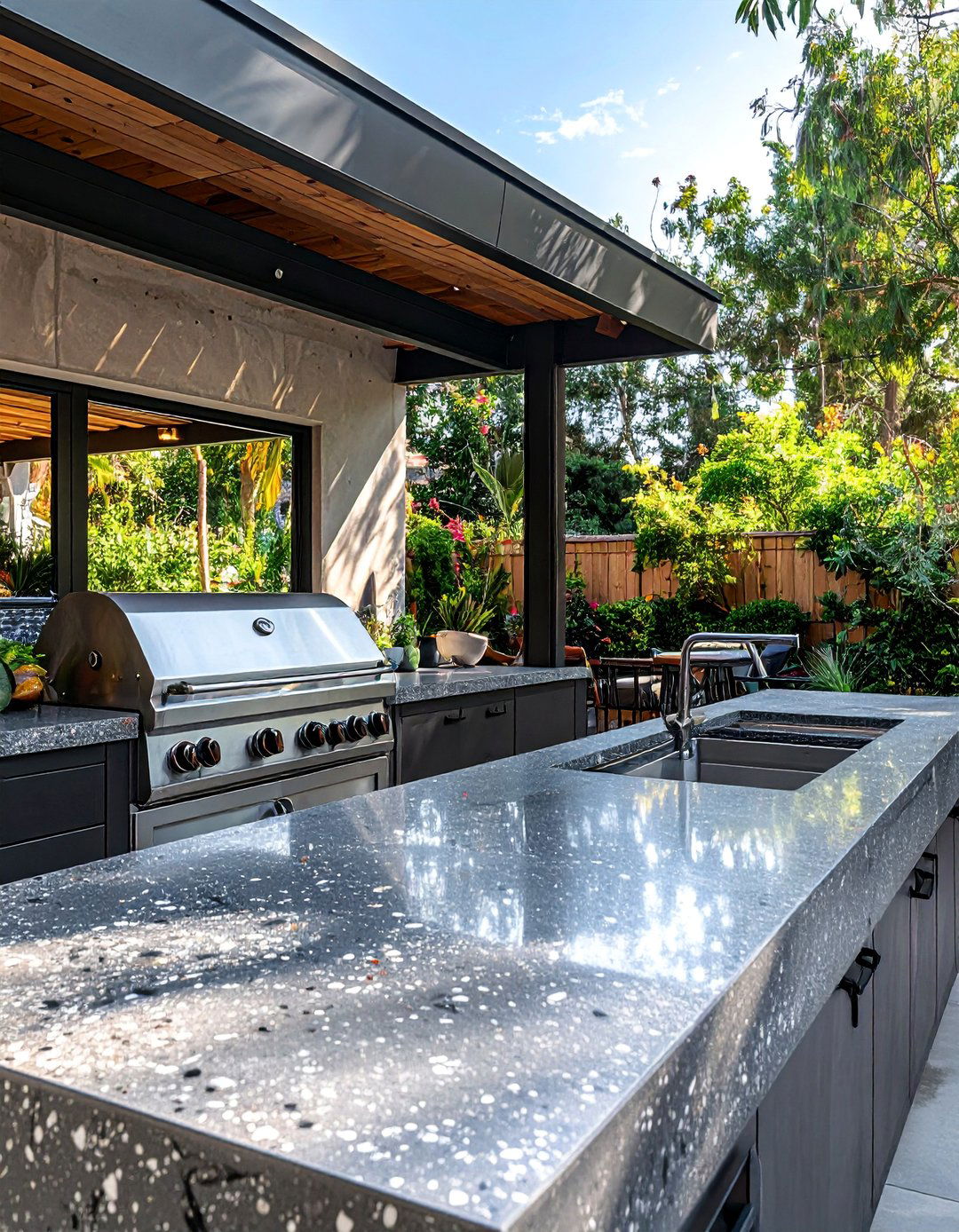
For a durable and stylish outdoor kitchen, polished concrete countertops are an exceptional choice. Poured and polished to a high sheen, these surfaces are not only visually striking but also incredibly resilient to weather and frequent use. They can be customized with different colors and aggregates mixed into the concrete to create a unique, stone-like appearance. The seamless nature of poured concrete means no grout lines to clean, making it a hygienic option for food preparation areas. Paired with stainless steel appliances and natural wood cabinetry, polished concrete countertops create a sophisticated and functional outdoor cooking and entertaining hub.
12. Concrete Garden Edging
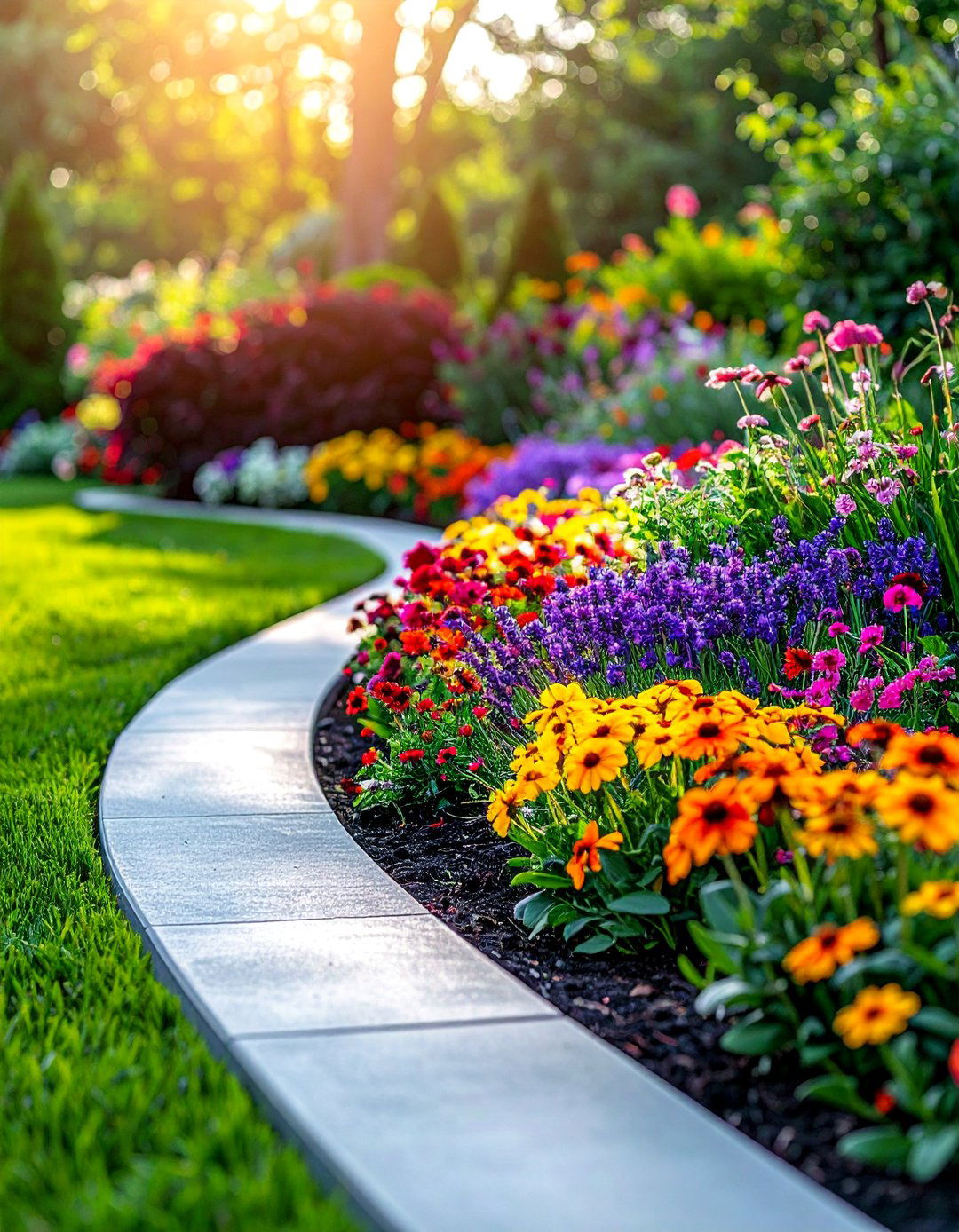
Using concrete garden edging is a practical and long-lasting way to define the borders of your flower beds, lawns, and pathways. Poured-in-place curbing can be created in straight lines or gentle curves, providing a clean and permanent separation between different garden areas. This prevents grass from encroaching into planting beds and keeps mulch or gravel contained. Pre-cast concrete edging blocks are also available in various styles, from simple scalloped designs to more modern, block-like shapes. The solid, defined lines created by concrete edging give the entire garden a tidy, well-maintained, and professionally landscaped appearance.
13. Minimalist Concrete Garden Stairs
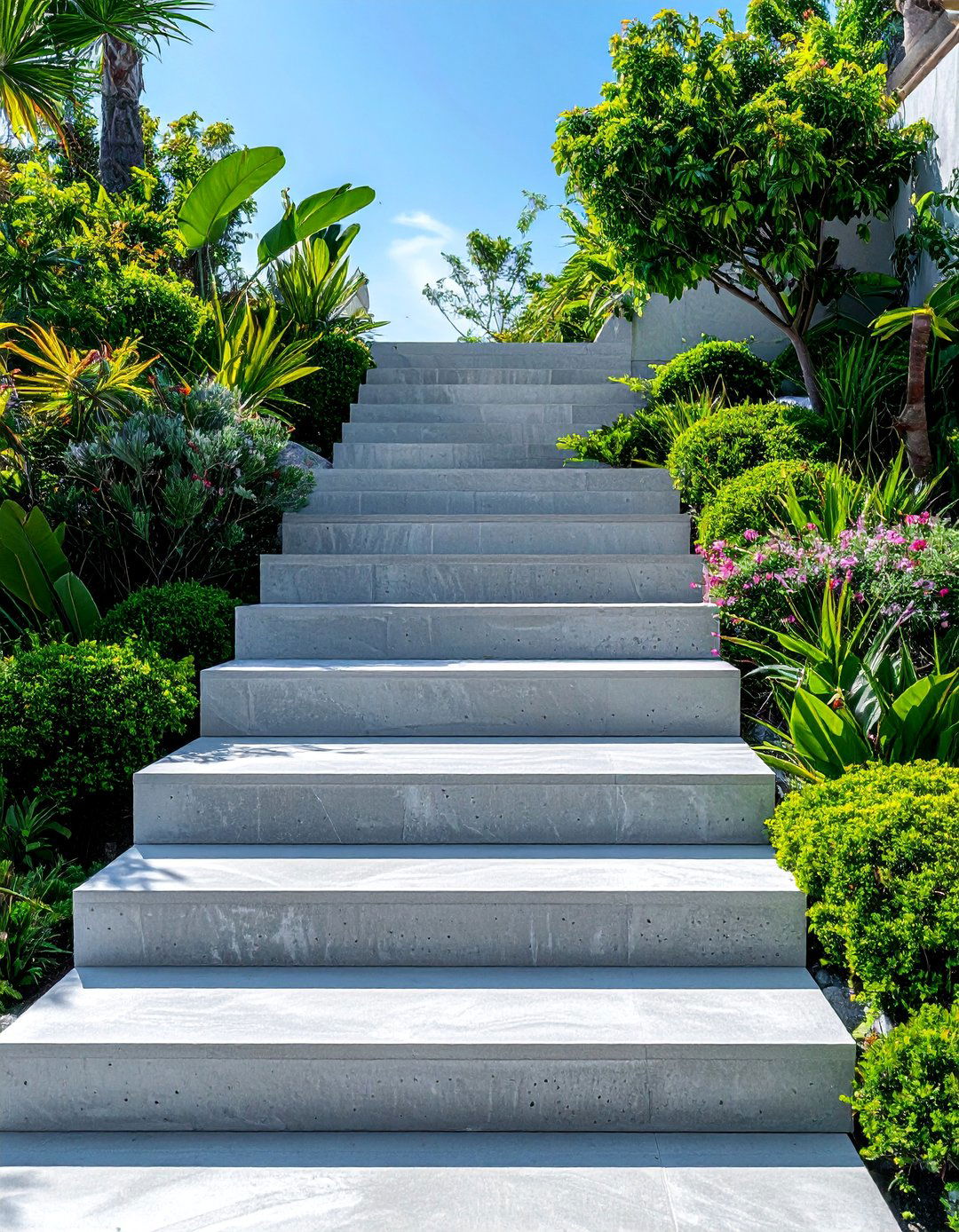
Minimalist concrete garden stairs offer a functional and visually clean way to navigate changes in elevation. Floating concrete steps, where each tread appears to hover independently, create a particularly striking and modern effect. For a more grounded look, a solid set of wide, shallow steps provides a grand and welcoming transition between different garden levels. The simple, unadorned nature of concrete keeps the focus on the surrounding plants and landscape features. Integrating subtle lighting under the lip of each step not only enhances safety at night but also adds a dramatic, high-end design element to the garden.
14. Concrete and Wood Garden Deck
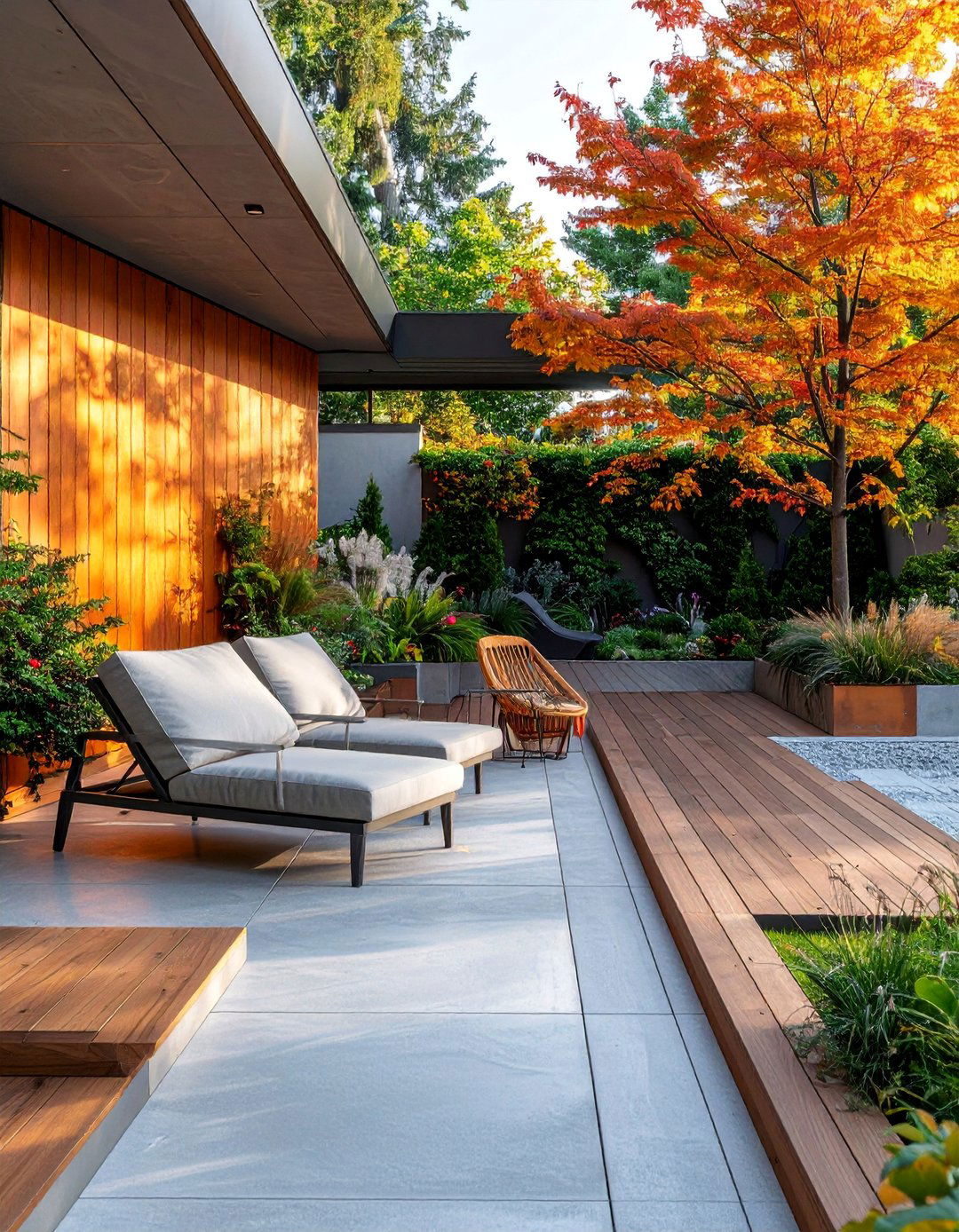
A concrete and wood garden deck combines the warmth of natural timber with the cool, industrial strength of concrete for a perfectly balanced design. This hybrid approach often involves a concrete base or patio area that transitions seamlessly into a raised wooden deck. The contrast in materials adds significant visual interest and helps to delineate different functional zones, such as a dining area on the concrete and a lounging space on the wood. This combination works exceptionally well in contemporary and transitional garden styles, offering the durability and low maintenance of concrete alongside the classic, comfortable feel of wood.
15. Concrete Paver Patio with Gravel Inlay
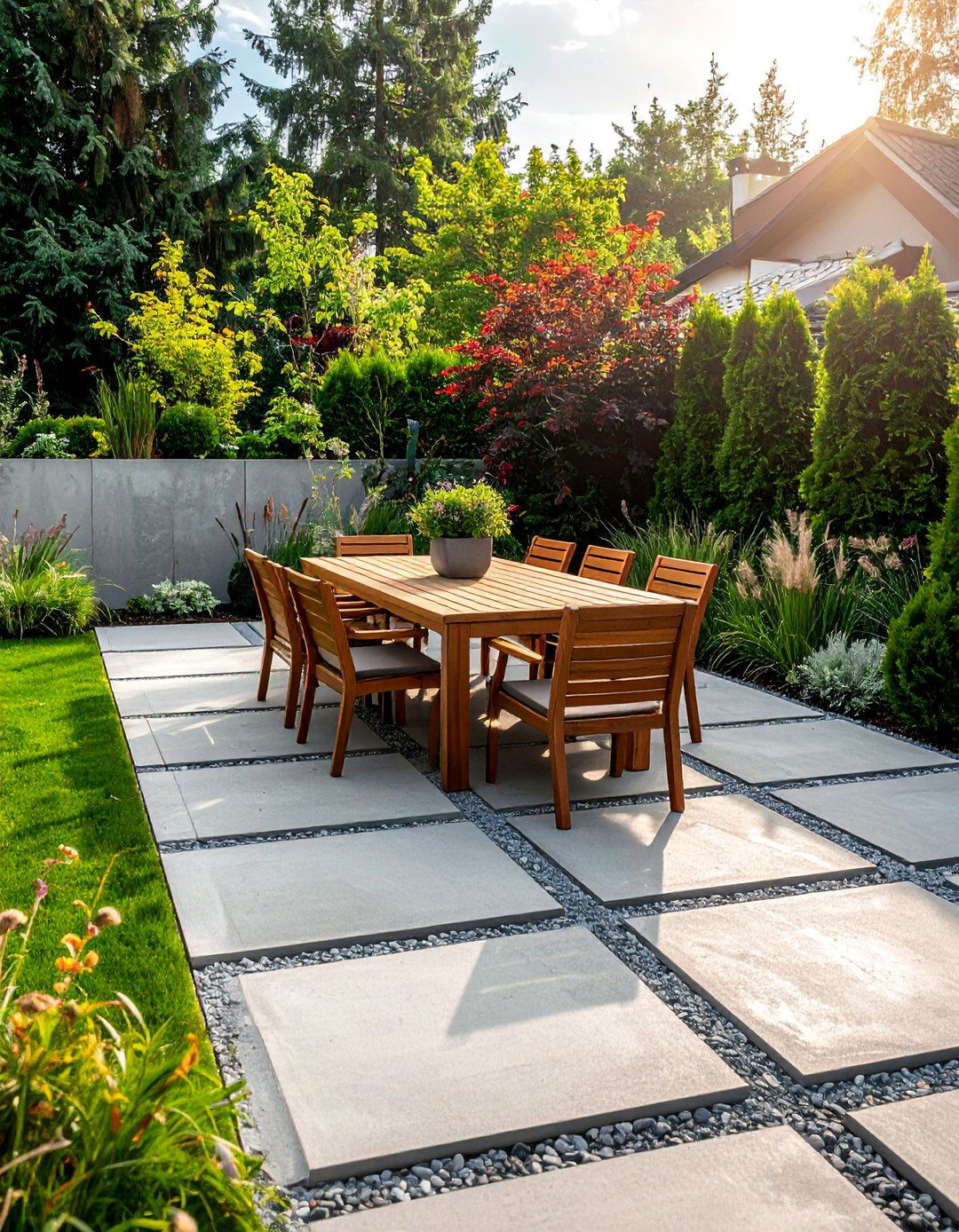
A concrete paver patio with gravel inlay offers a permeable and texturally rich alternative to a solid slab. This design uses large-format square or rectangular concrete pavers spaced apart, with the gaps filled in with decorative gravel or small pebbles. The pattern creates a clean, geometric look while allowing rainwater to drain through, which is an eco-friendly benefit. The contrast between the smooth, solid pavers and the loose, fine texture of the gravel adds depth and visual interest to the patio surface. This style is perfect for creating a relaxed, contemporary outdoor seating area that feels integrated with the natural landscape.
16. DIY Concrete Leaf Casting Decorations
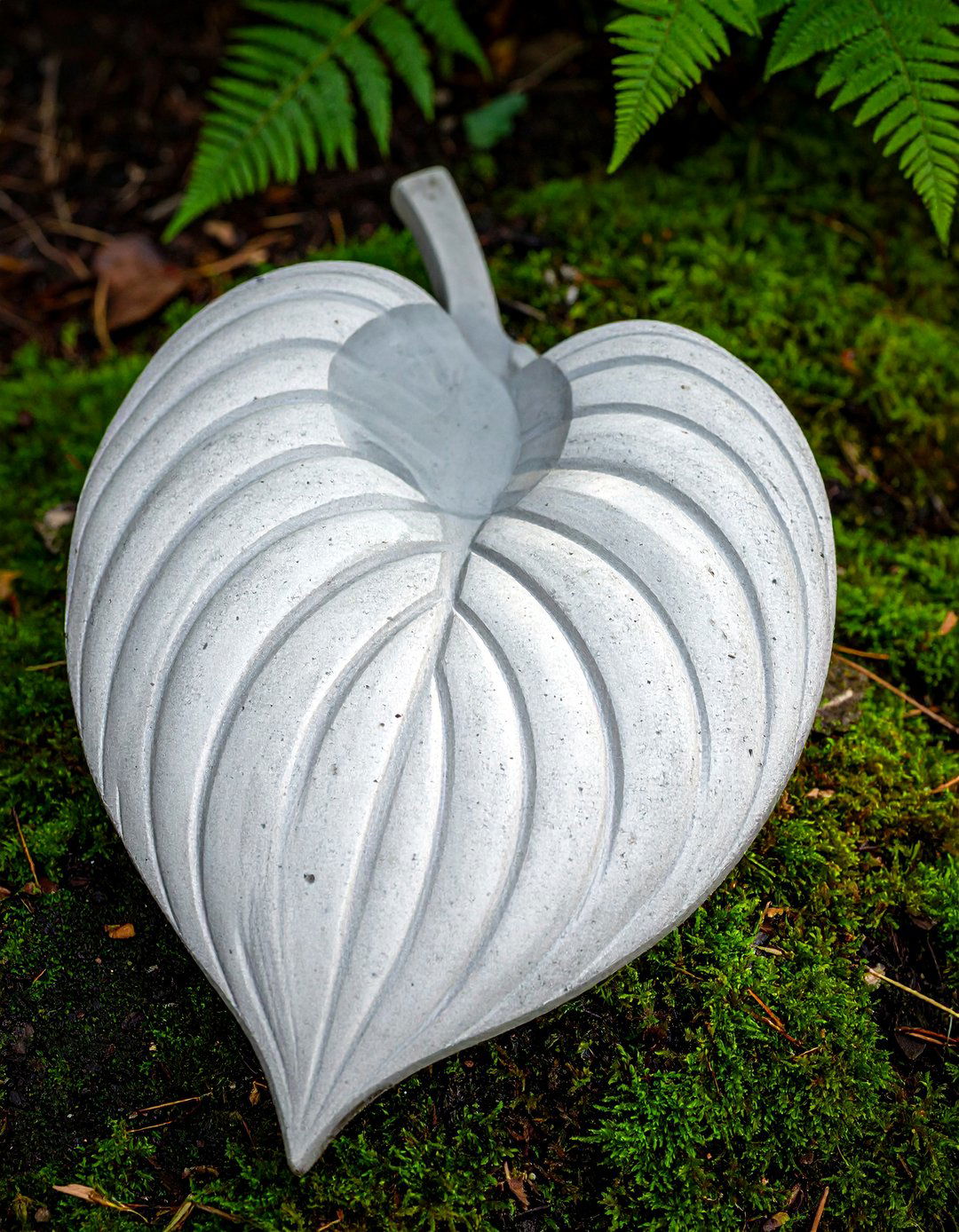
Creating DIY concrete leaf casting decorations is a simple yet effective way to capture the delicate beauty of nature in a durable form. By pressing a large, veiny leaf like rhubarb or hosta into a mound of wet concrete mix and allowing it to cure, you can produce a detailed fossil-like impression. Once hardened, these castings can be used as unique stepping stones, decorative bowls for a tabletop, or as a shallow bird bath. They add a personal, artistic, and organic touch to the garden, celebrating the intricate patterns of the foliage in a permanent and surprising way.
17. Concrete Garden Sculpture

A standalone concrete garden sculpture can act as a powerful focal point, adding an artistic and thought-provoking element to your outdoor space. Concrete's versatility allows for a wide range of forms, from abstract geometric shapes to figurative works. The neutral grey color of the material ensures that the sculpture complements the surrounding greenery without overpowering it, while its texture adds a tactile dimension. Placing a sculpture at the end of a pathway, in the center of a lawn, or nestled within a planting bed draws the eye and adds a layer of sophistication and personality to the overall garden design.
18. Floating Concrete Garden Shelves
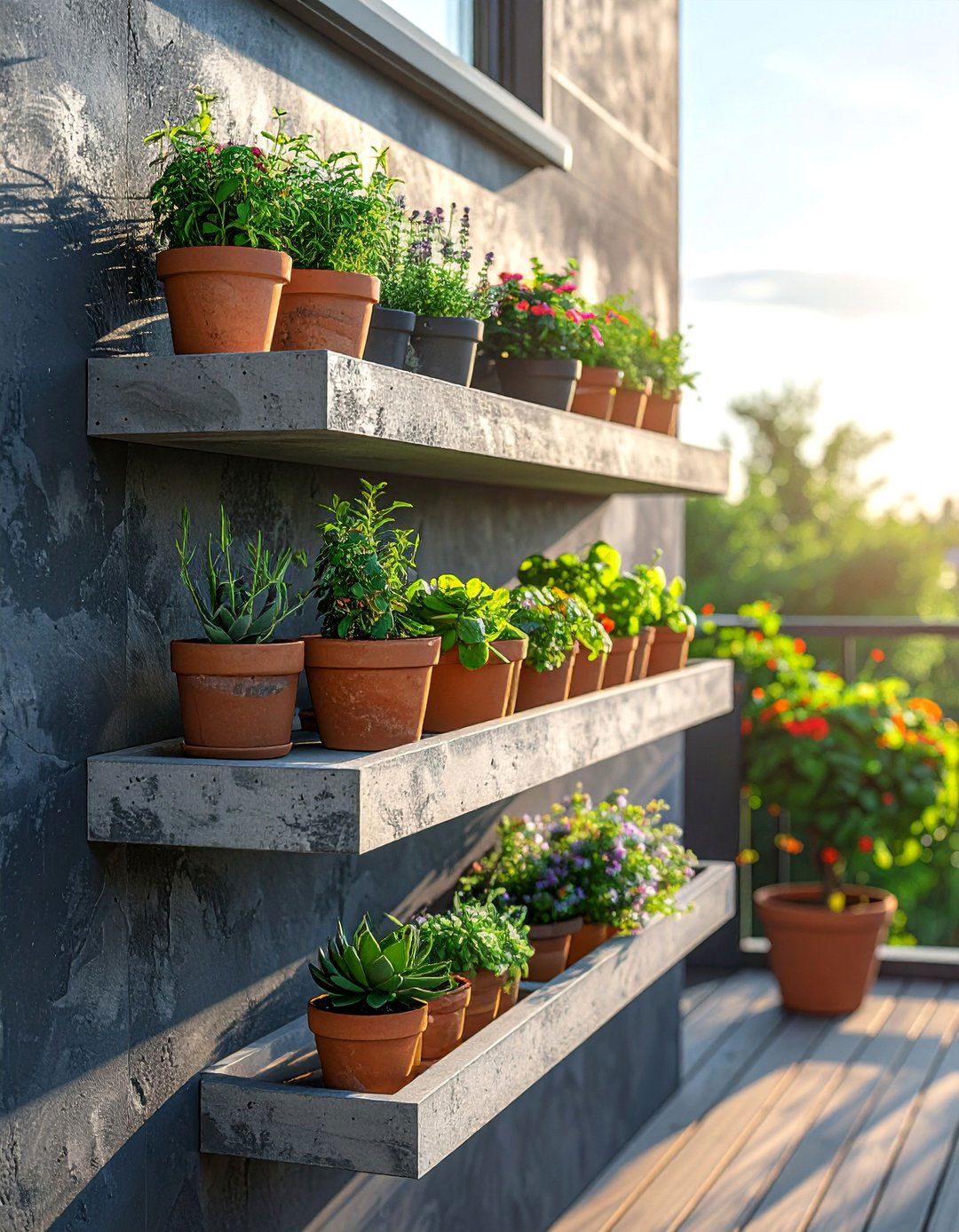
For small patios or vertical gardening, floating concrete garden shelves provide a stylish and space-saving solution for displaying plants and decor. These shelves are mounted directly onto a wall or fence with hidden brackets, creating the illusion that they are hovering in mid-air. Their sleek, minimalist design is perfect for showcasing a collection of small potted plants like succulents, herbs, or trailing ivy. The solid, industrial look of the concrete provides a striking backdrop that makes the green foliage pop. This is an excellent way to add dimension and life to a blank wall in your garden or balcony area.
19. Stained Concrete Garden Floor
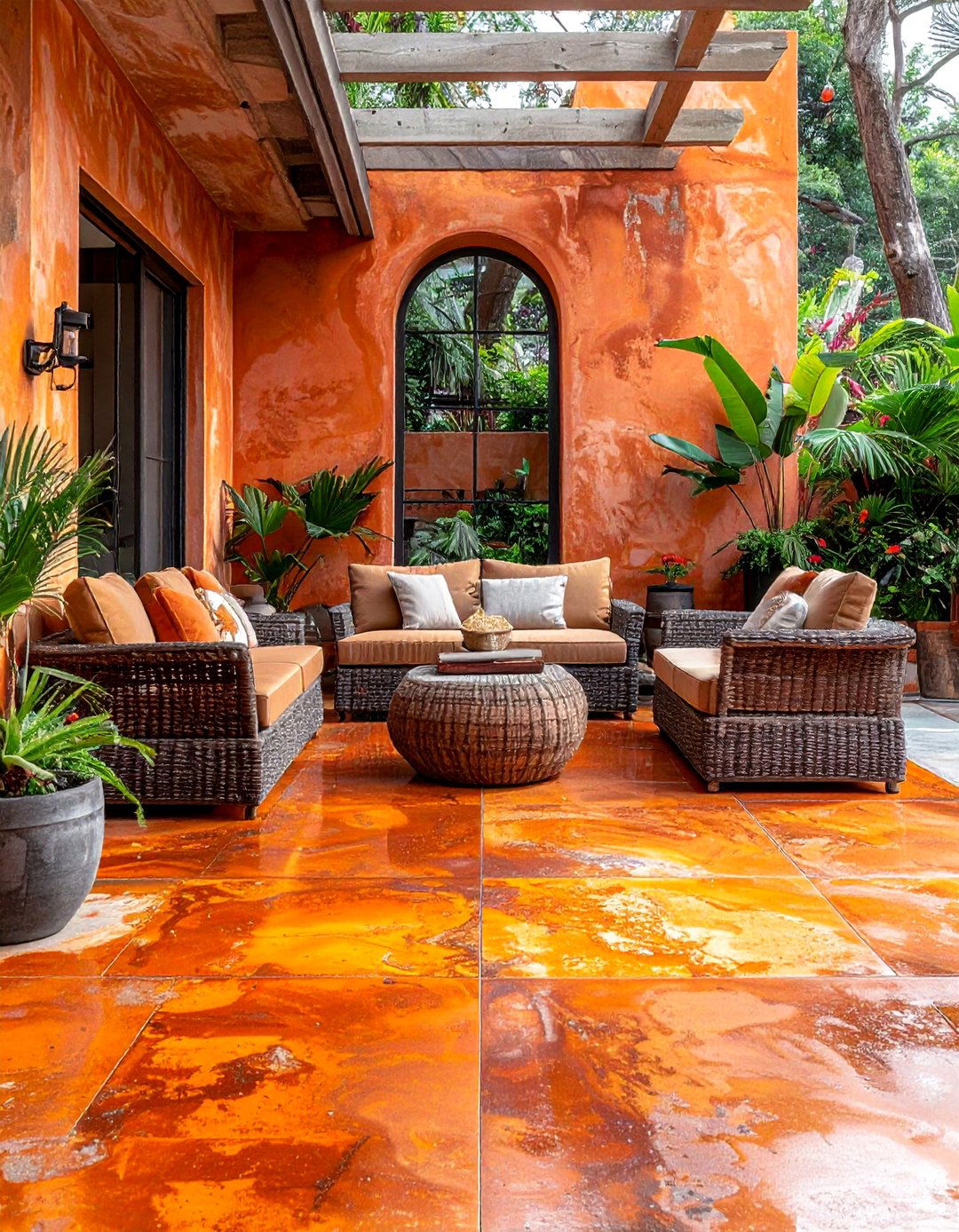
Stained concrete offers a way to introduce rich, translucent color to your garden floor, transforming a plain patio into a vibrant and unique surface. Unlike paint, which coats the top, acid or water-based stains penetrate the concrete to create a mottled, variegated appearance that can mimic the look of natural stone or aged leather. Available in a range of earthy tones, from deep browns and reds to cool blues and greens, staining allows for a customized finish that is both durable and UV-resistant. This technique adds depth, character, and a touch of warmth to any concrete patio or walkway.
20. Concrete Gabion Wall
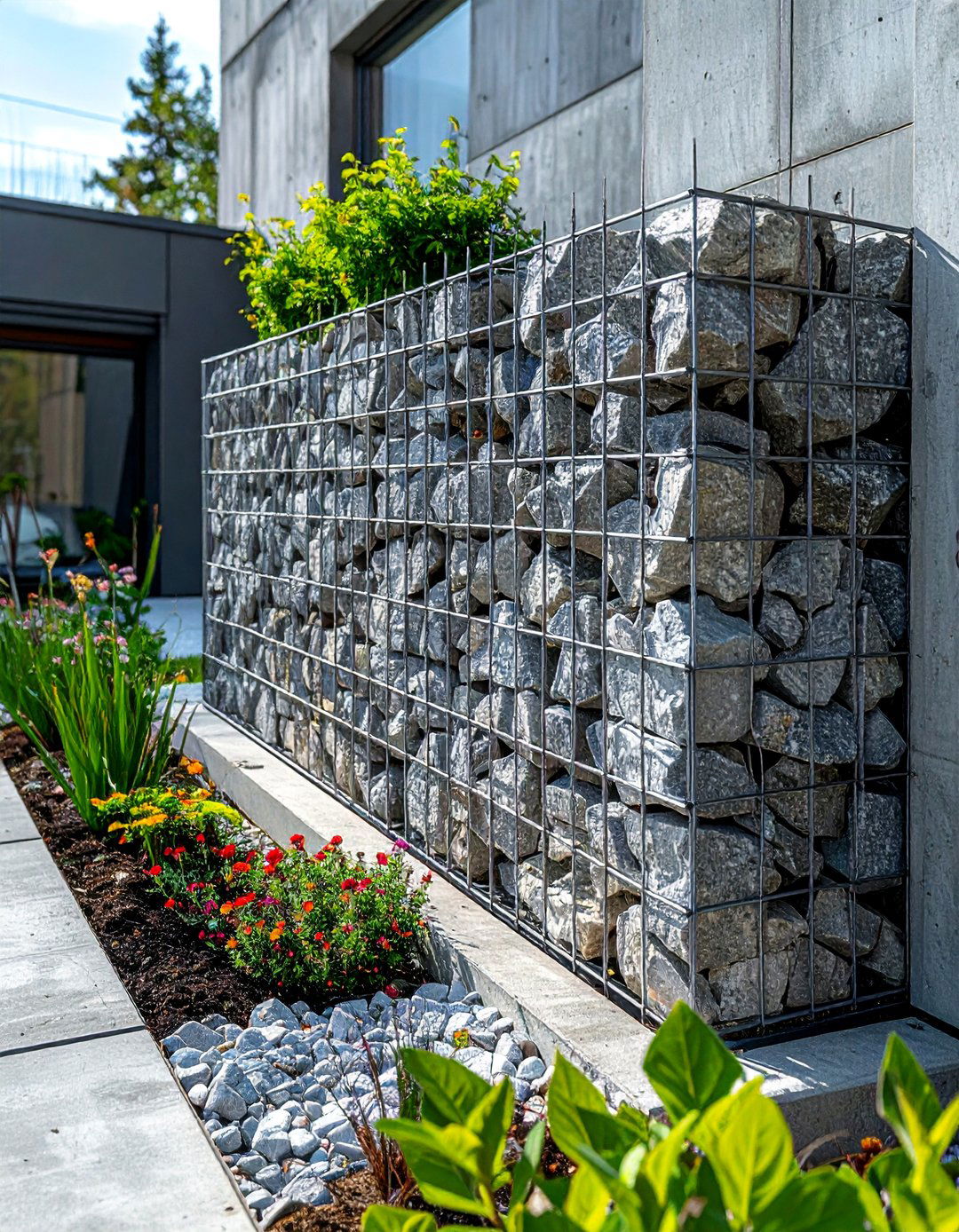
A concrete gabion wall combines industrial wire mesh cages with chunks of broken concrete for a rustic and highly textural feature. Traditionally filled with stones, using recycled concrete pieces instead is an eco-friendly and cost-effective alternative that adds a unique, rugged aesthetic. These walls can be used as retaining walls, freestanding privacy screens, or as bases for benches and planters. The interplay between the rigid grid of the wire cage and the irregular shapes of the concrete rubble creates a visually compelling structure that is both strong and permeable, allowing for drainage and even opportunities for planting within its crevices.
21. Concrete Pipe Garden Planters
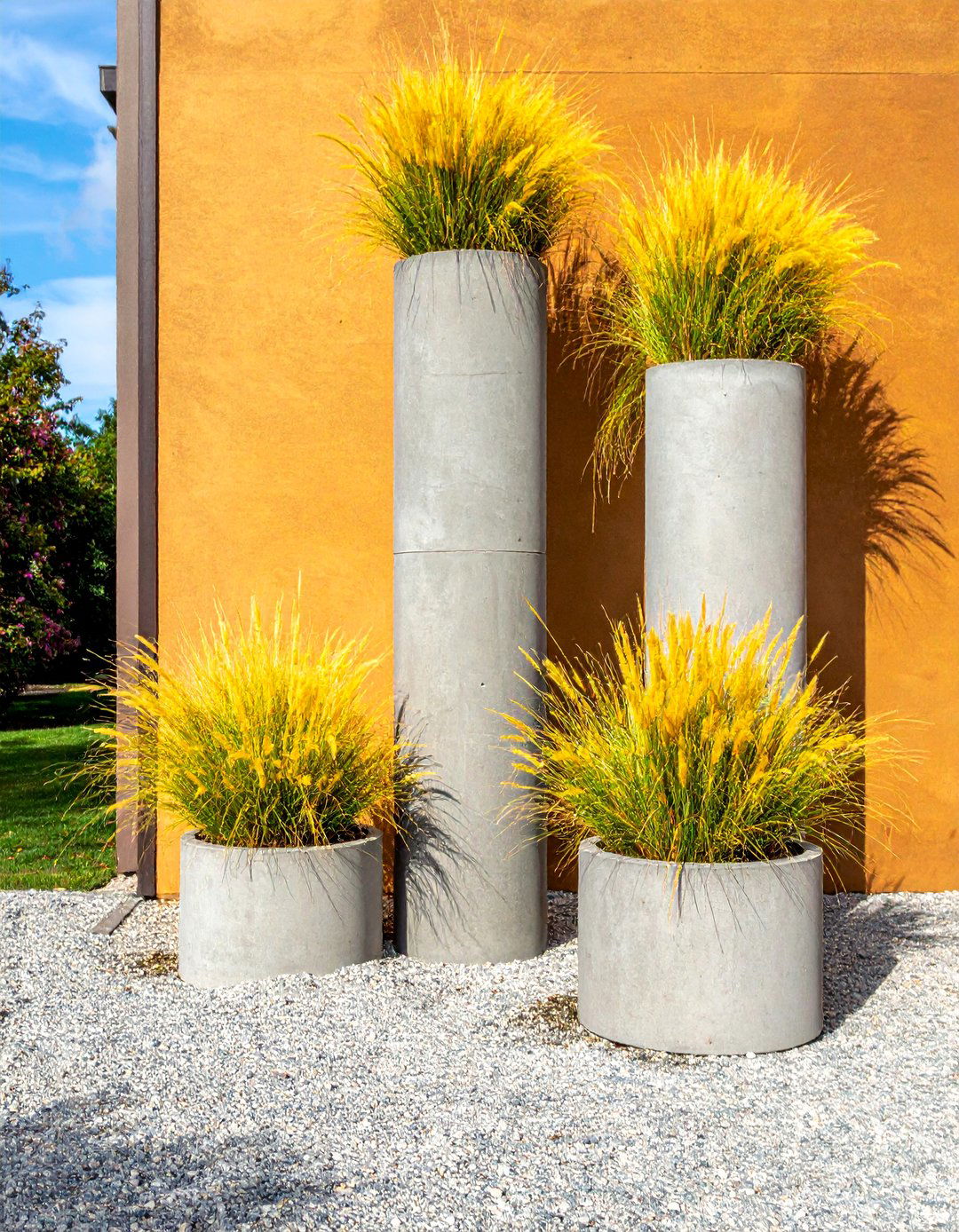
Repurposing large concrete pipes as garden planters introduces a bold, industrial-chic element to your landscape. These cylindrical forms can be set vertically, either individually or in clusters of varying heights, to create dramatic container gardens. Their significant size makes them ideal for planting small trees, ornamental grasses, or a large volume of cascading flowers. The raw, utilitarian look of the concrete pipes provides a powerful contrast to the delicate plants they hold. You can also lay a pipe section on its side and fill the lower half with soil to create a unique, trough-style planter that adds an unexpected touch.
22. Imprinted Concrete with Natural Textures
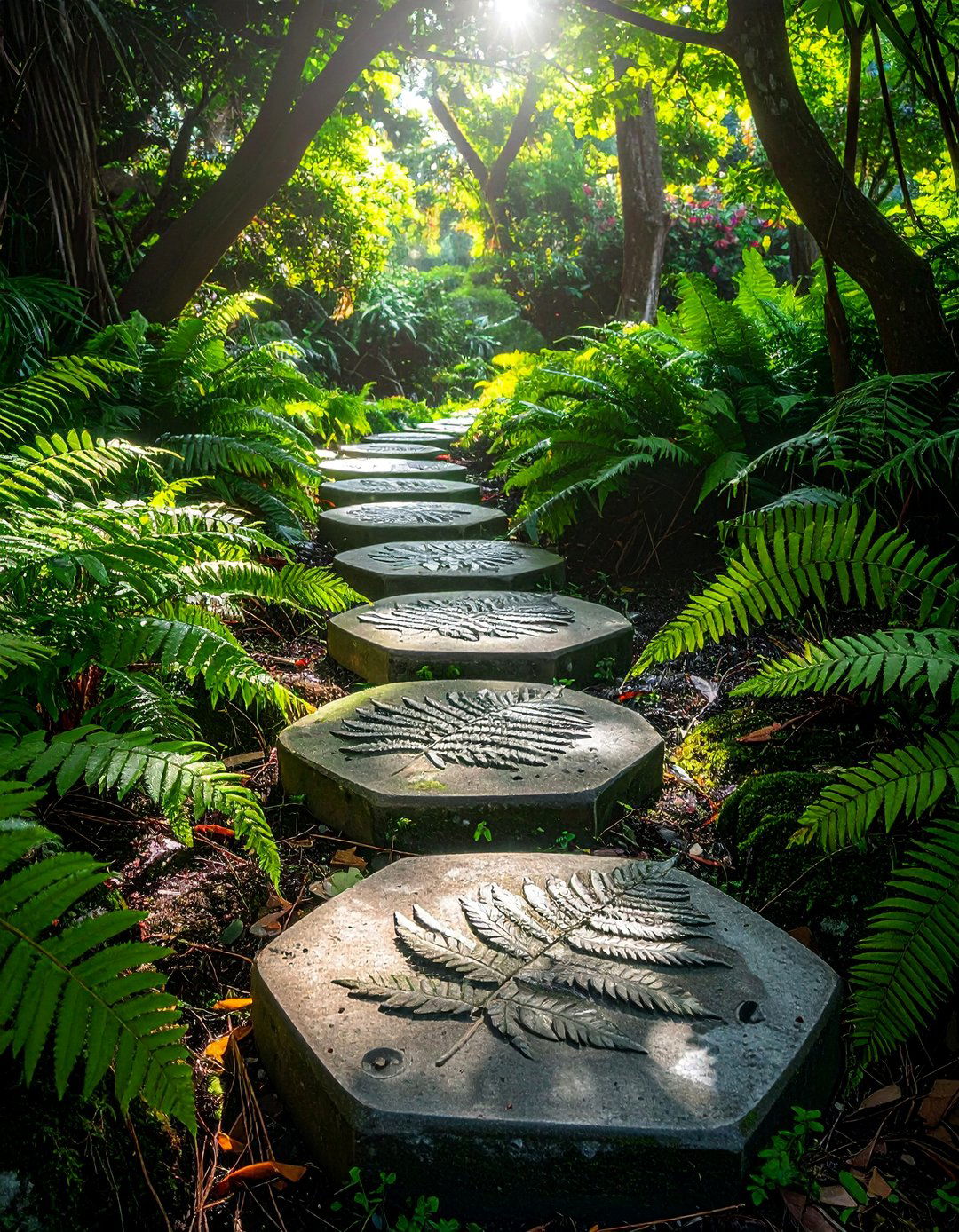
Imprinting natural textures onto a concrete surface is a creative way to soften its appearance and connect it to the garden environment. While the concrete is still wet, you can press items like large leaves, pieces of driftwood, or even coarse fabrics onto the surface to leave behind their unique patterns. This technique works especially well for stepping stones or small patio areas, adding a subtle, organic detail that is both beautiful and personal. The result is a one-of-a-kind finish that captures the fleeting textures of nature in a permanent form, adding a layer of artistry and tactile interest to the hardscape.
23. Concrete Garden Table and Stools
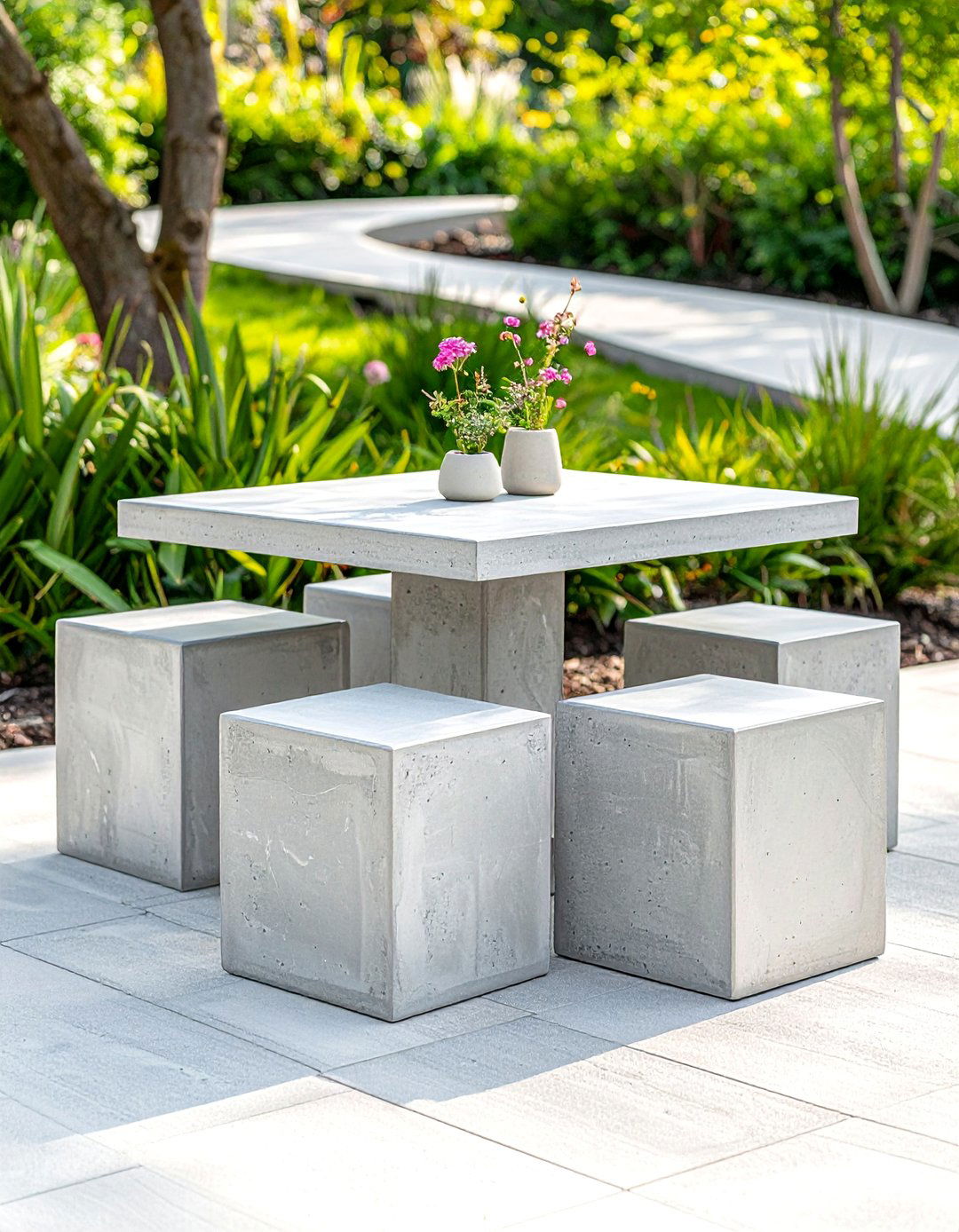
A concrete garden table and stools set provides a durable and minimalist outdoor dining or seating area. This type of furniture is impervious to weather, requiring no winter storage or maintenance beyond occasional cleaning. The table could be a simple slab top on concrete block legs, while the stools could be solid cylinders or cubes. The raw, monolithic quality of concrete furniture makes a strong design statement, perfect for modern and industrial-style gardens. To soften the look and add comfort, you can top the stools with colorful outdoor cushions, creating a functional and stylish spot for gathering and entertaining.
24. Glow-in-the-Dark Concrete Pathway
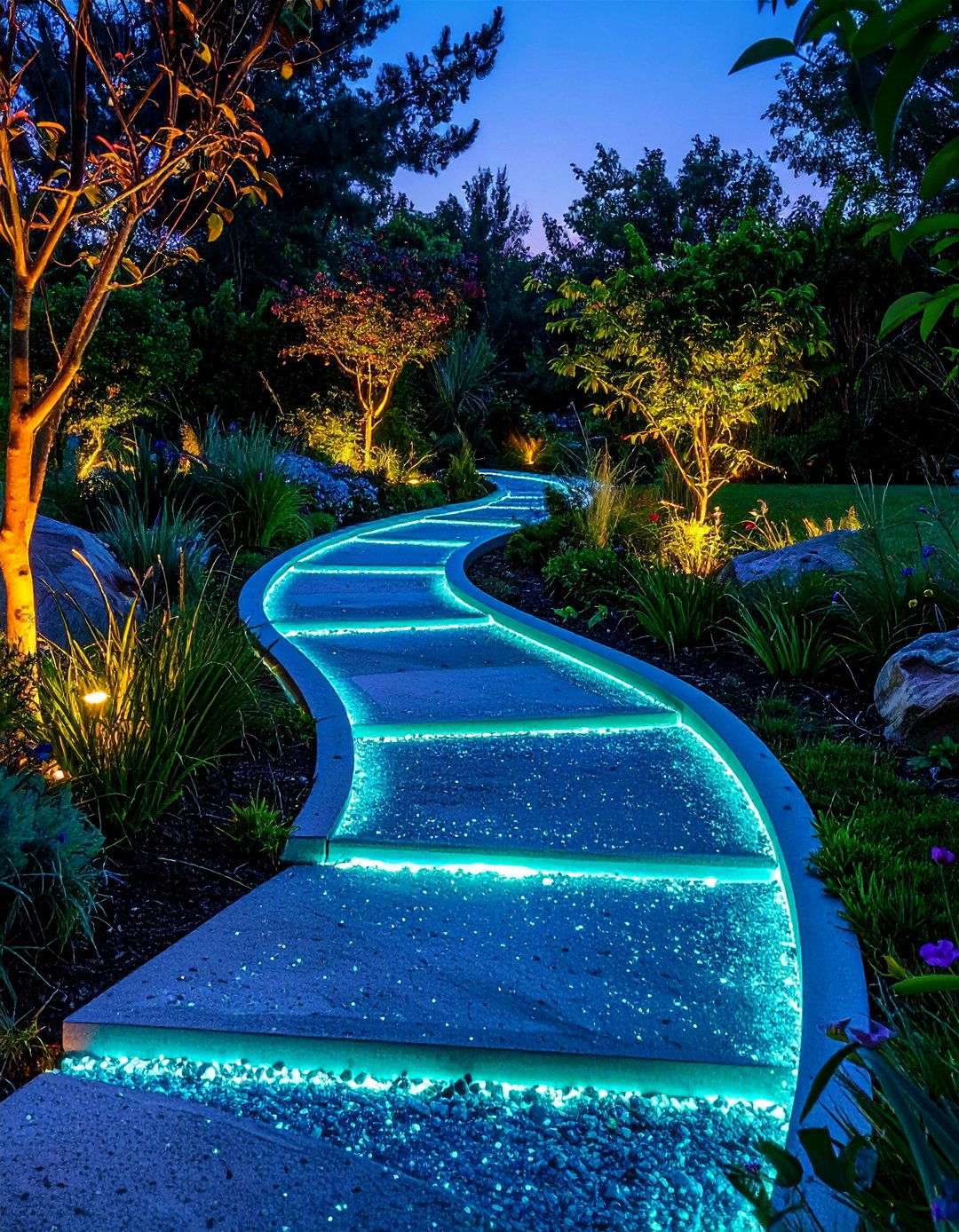
A glow-in-the-dark concrete pathway adds a magical and practical element to your garden after sunset. This is achieved by mixing phosphorescent aggregates into the concrete before it is poured. These aggregates absorb UV light during the day and then emit a gentle, ambient glow at night, illuminating the path without the need for electricity. The effect is enchanting, creating a starry-sky appearance underfoot that guides your way through the garden. This innovative application of concrete not only enhances safety by making the walkway visible but also introduces a unique and surprising design feature that comes to life after dark.
25. Concrete Garden Privacy Screen
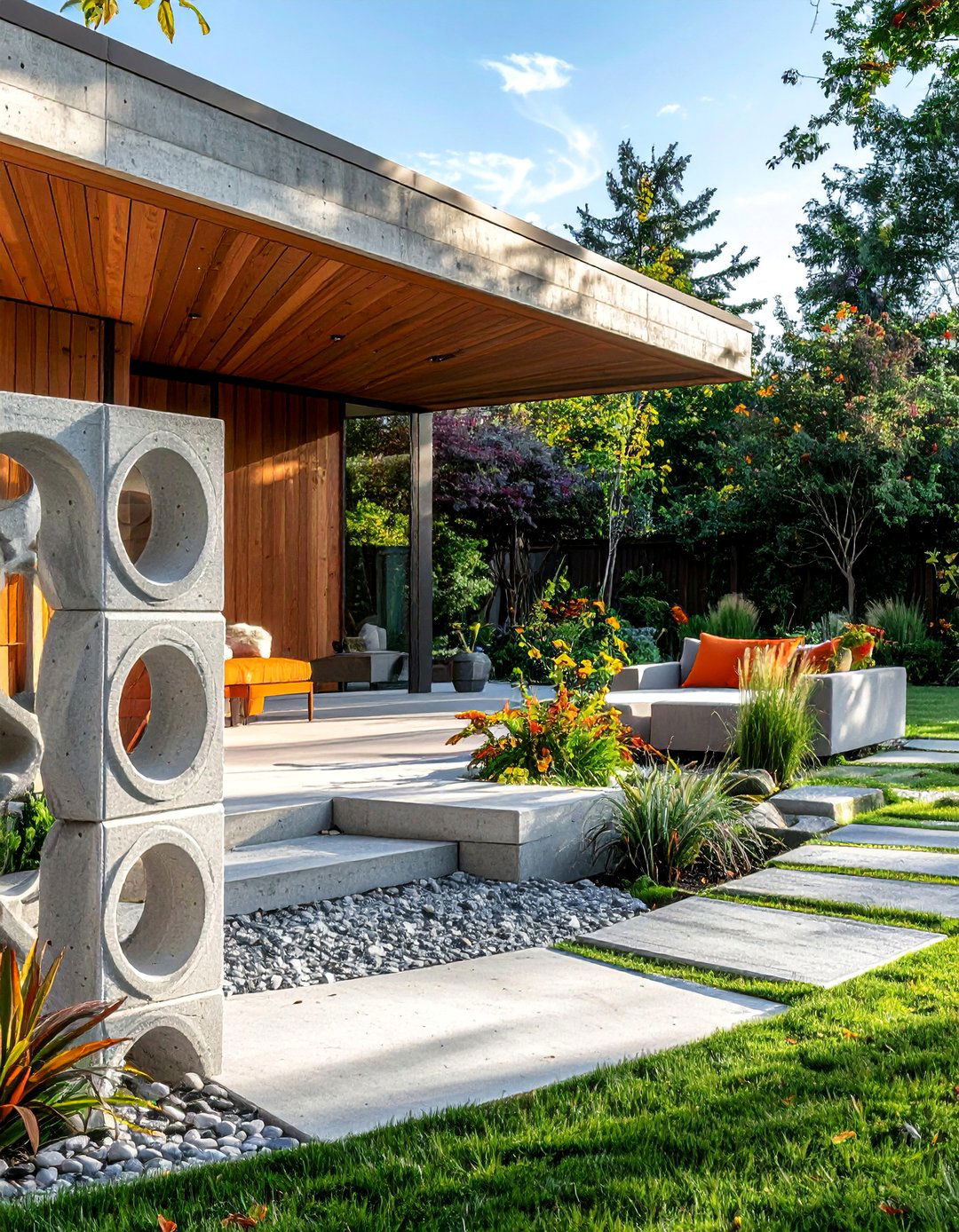
A concrete garden privacy screen offers a solid, permanent solution for shielding your outdoor space from neighbors or unsightly views. This can be constructed from a series of tall, slender pre-cast concrete panels arranged with small gaps in between to allow light and air to pass through, creating interesting shadow patterns. Another option is to use decorative concrete blocks (breeze blocks) with perforated patterns, which provide privacy while still feeling open and airy. These screens serve a practical function but also act as a strong architectural backdrop for climbing plants or as a feature wall in their own right.
Conclusion:
Ultimately, concrete is an exceptionally adaptable and enduring material for elevating your garden's design. From functional patios and retaining walls to artistic sculptures and custom planters, its potential is vast. The ideas explored demonstrate that concrete can be sleek, textured, colored, and shaped to suit any aesthetic, whether modern, rustic, or minimalist. By embracing the strength and versatility of concrete, you can create a sophisticated and low-maintenance outdoor space that is both beautiful and built to last, providing a solid foundation for years of enjoyment in your personal sanctuary.

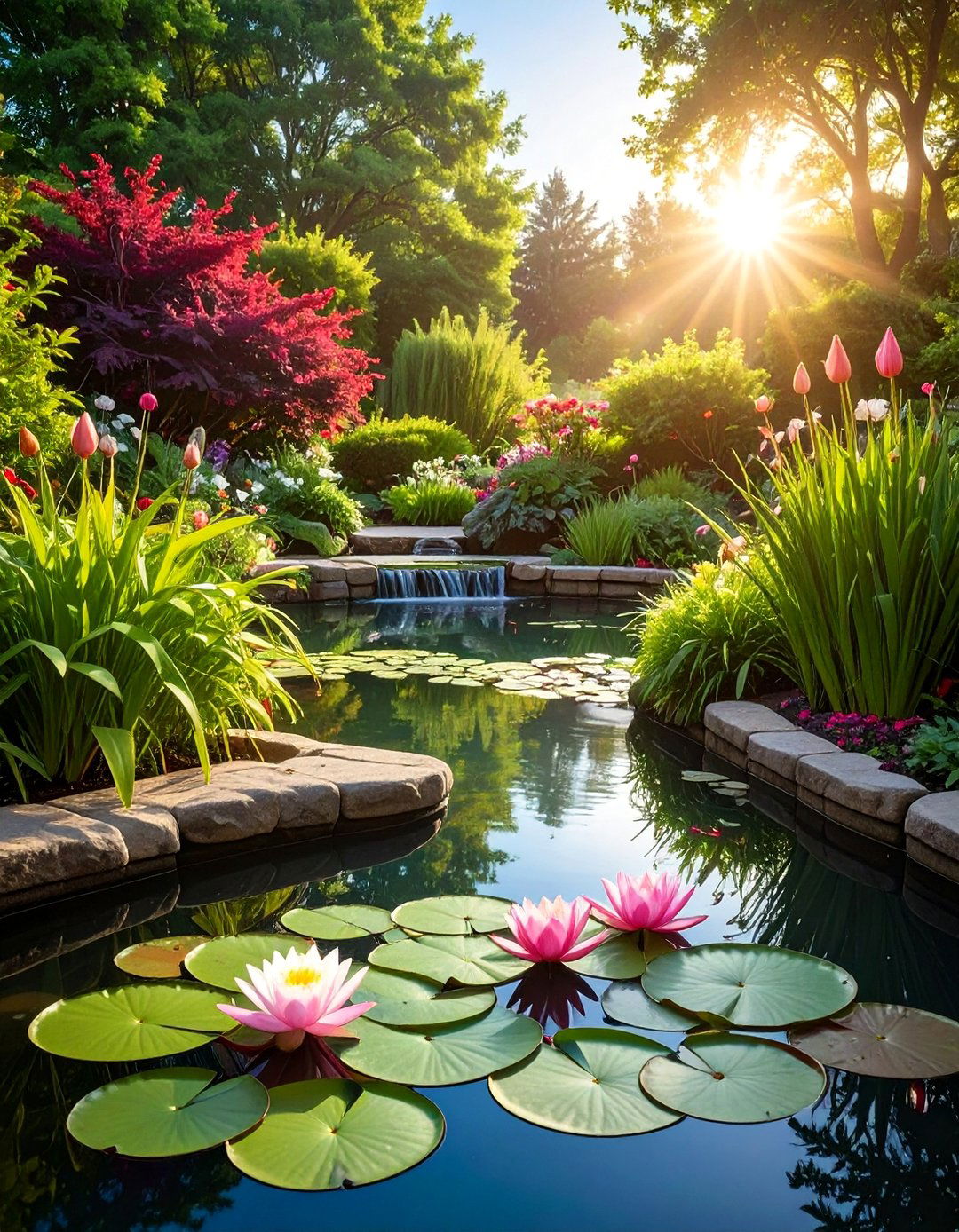
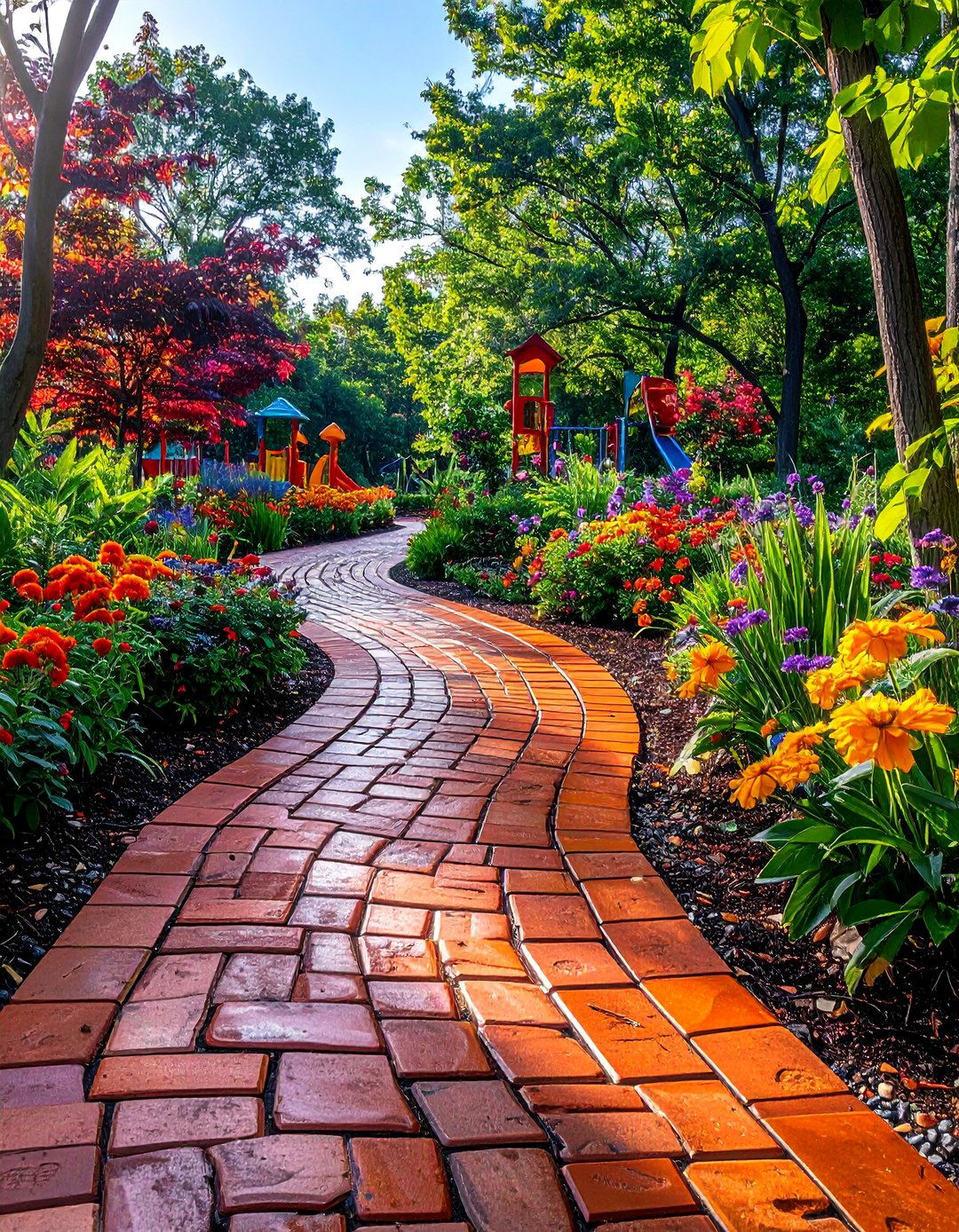
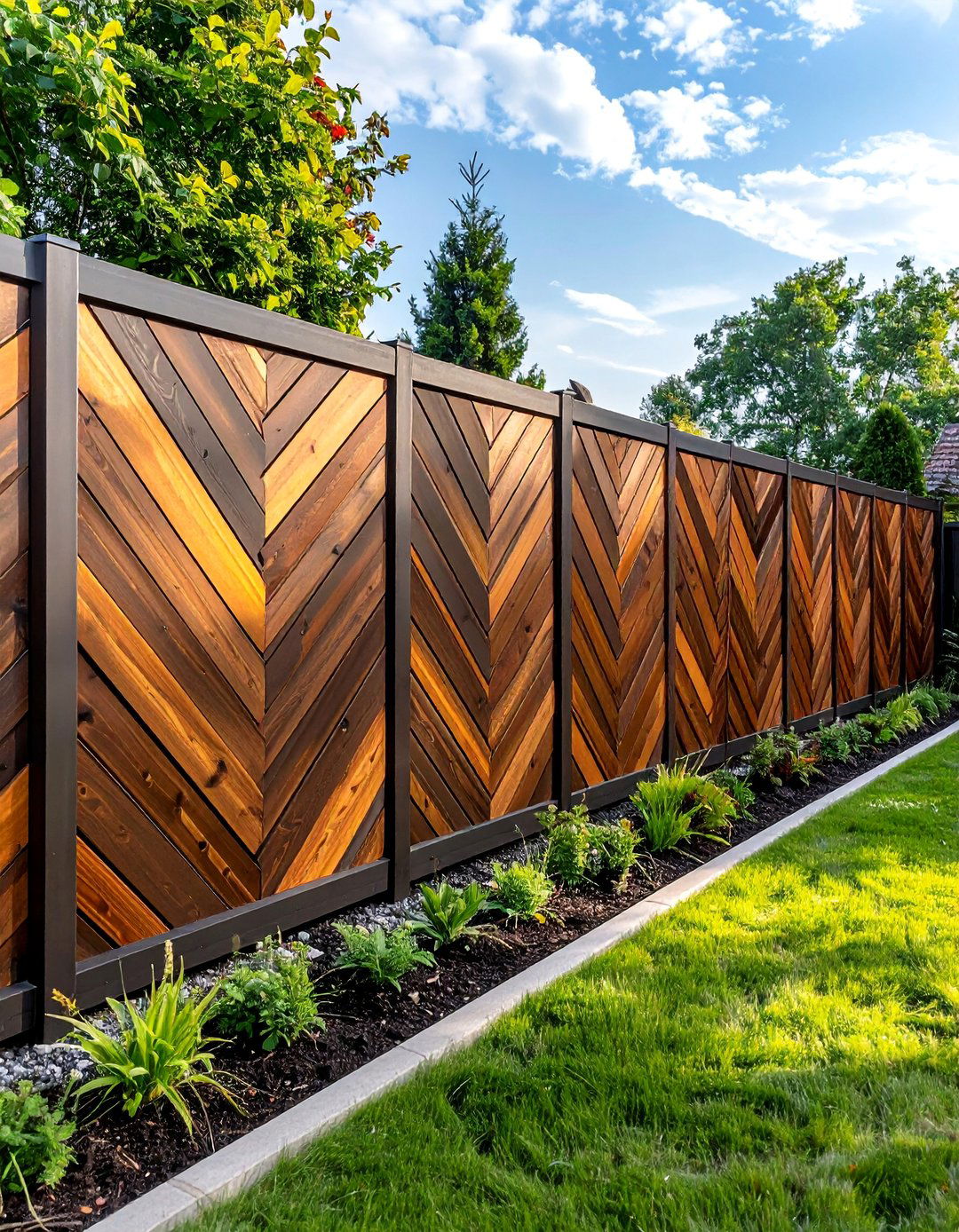
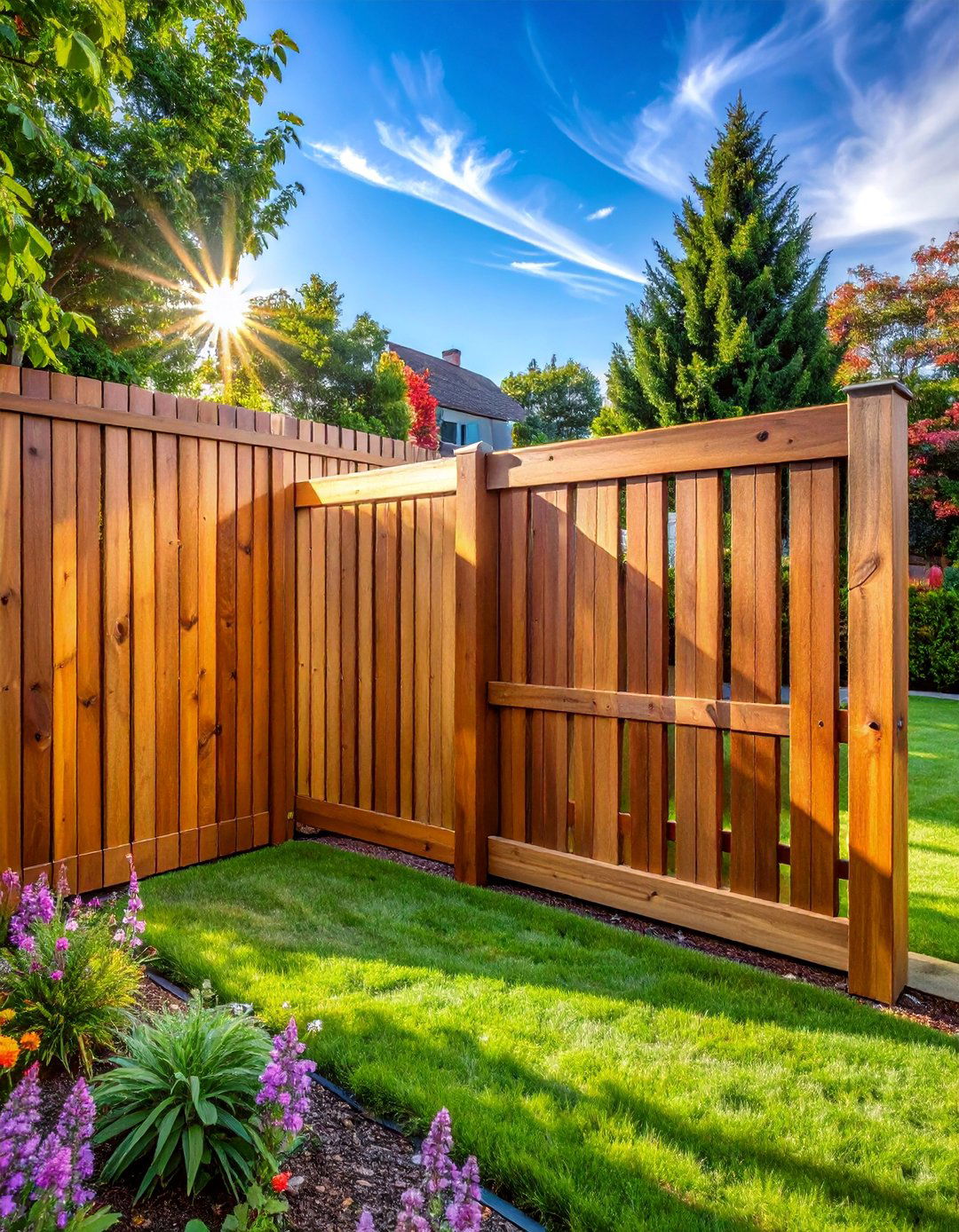
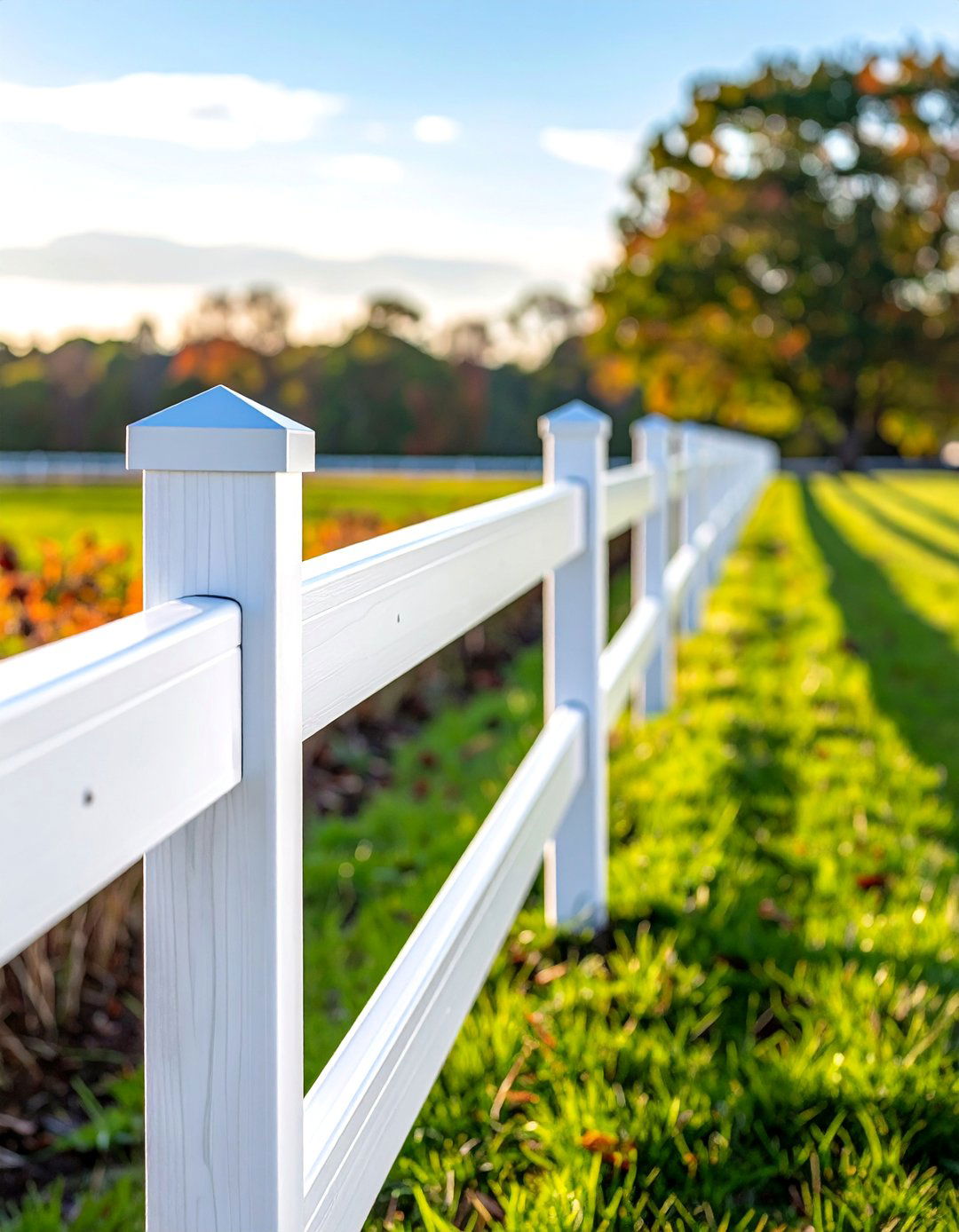
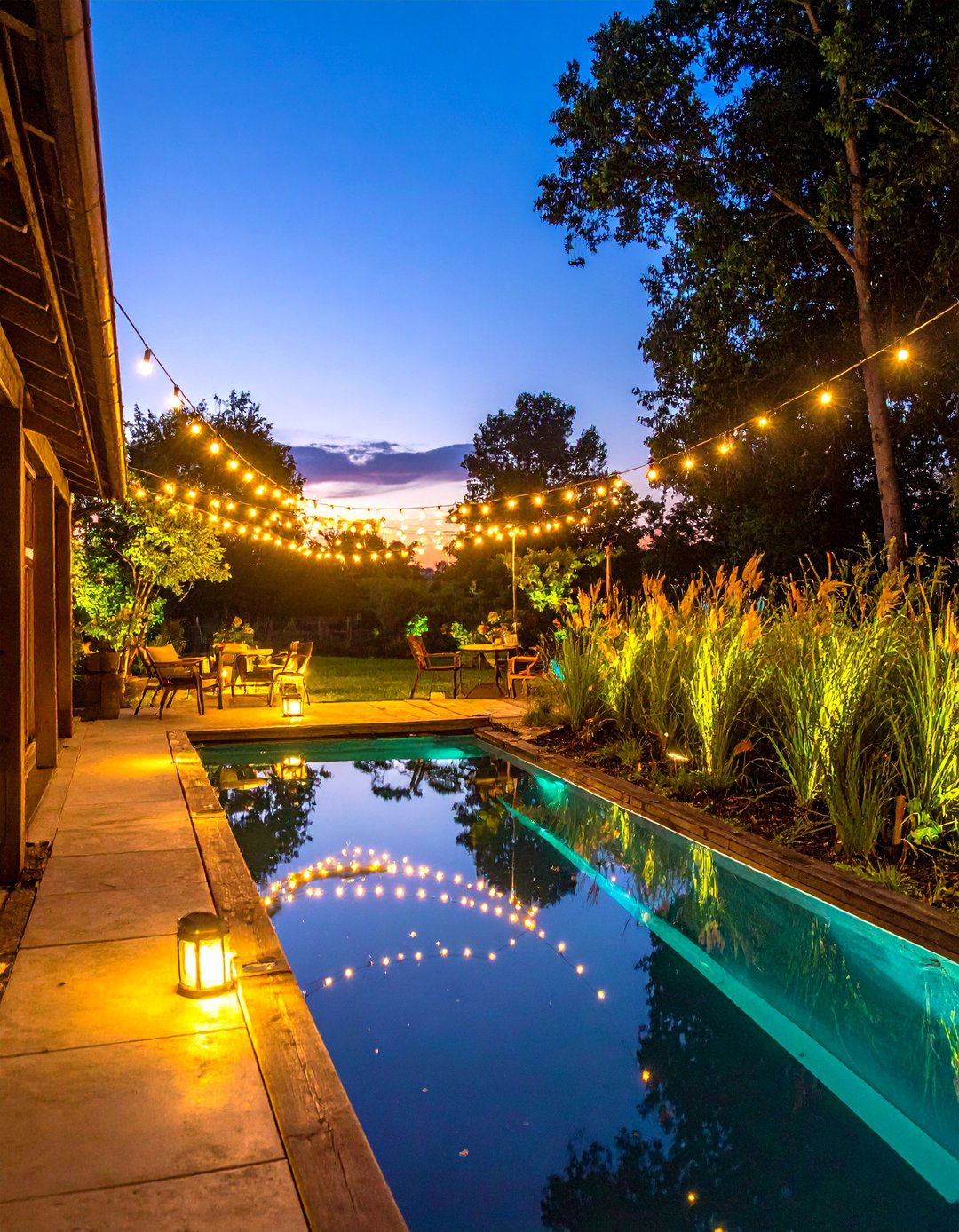
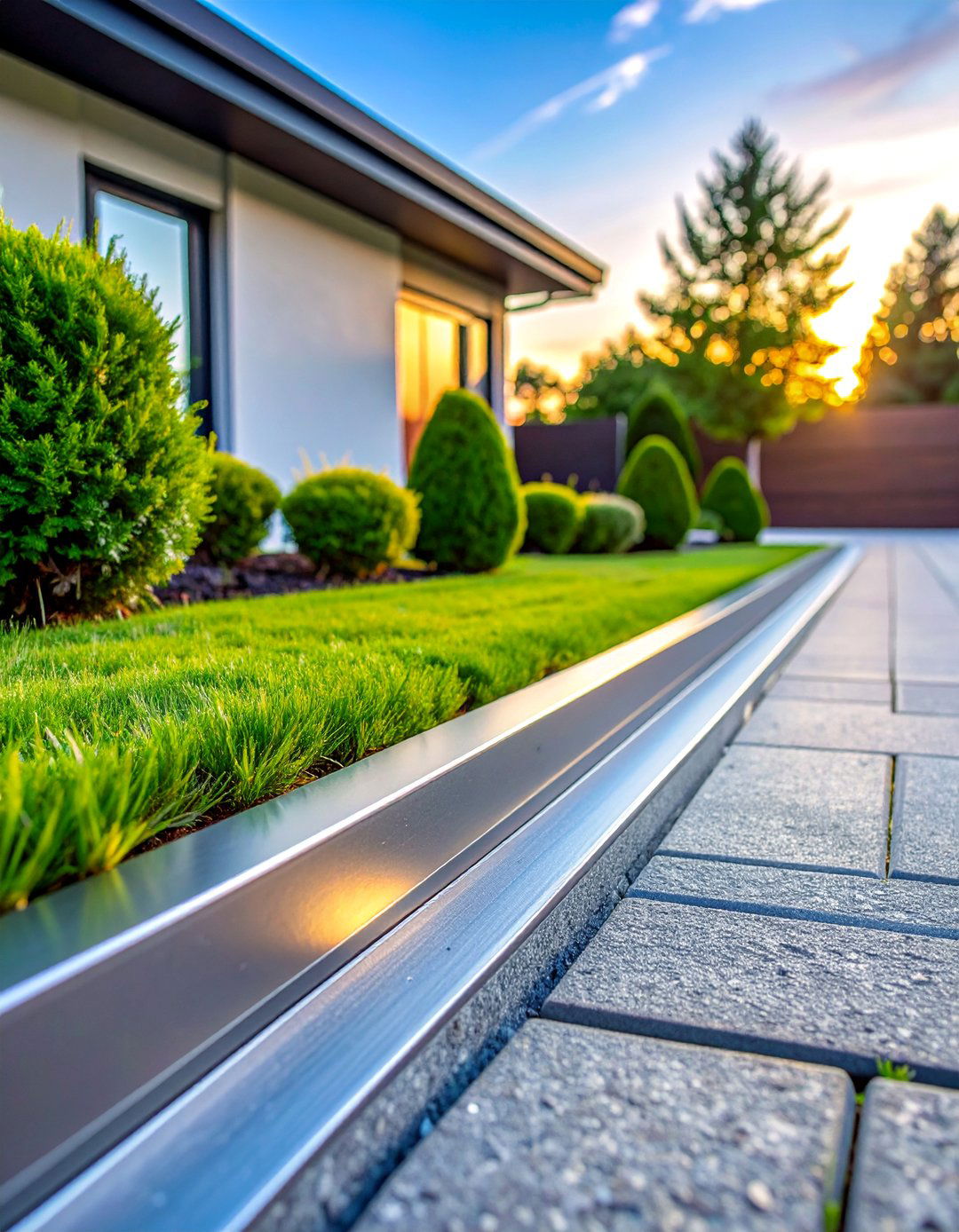
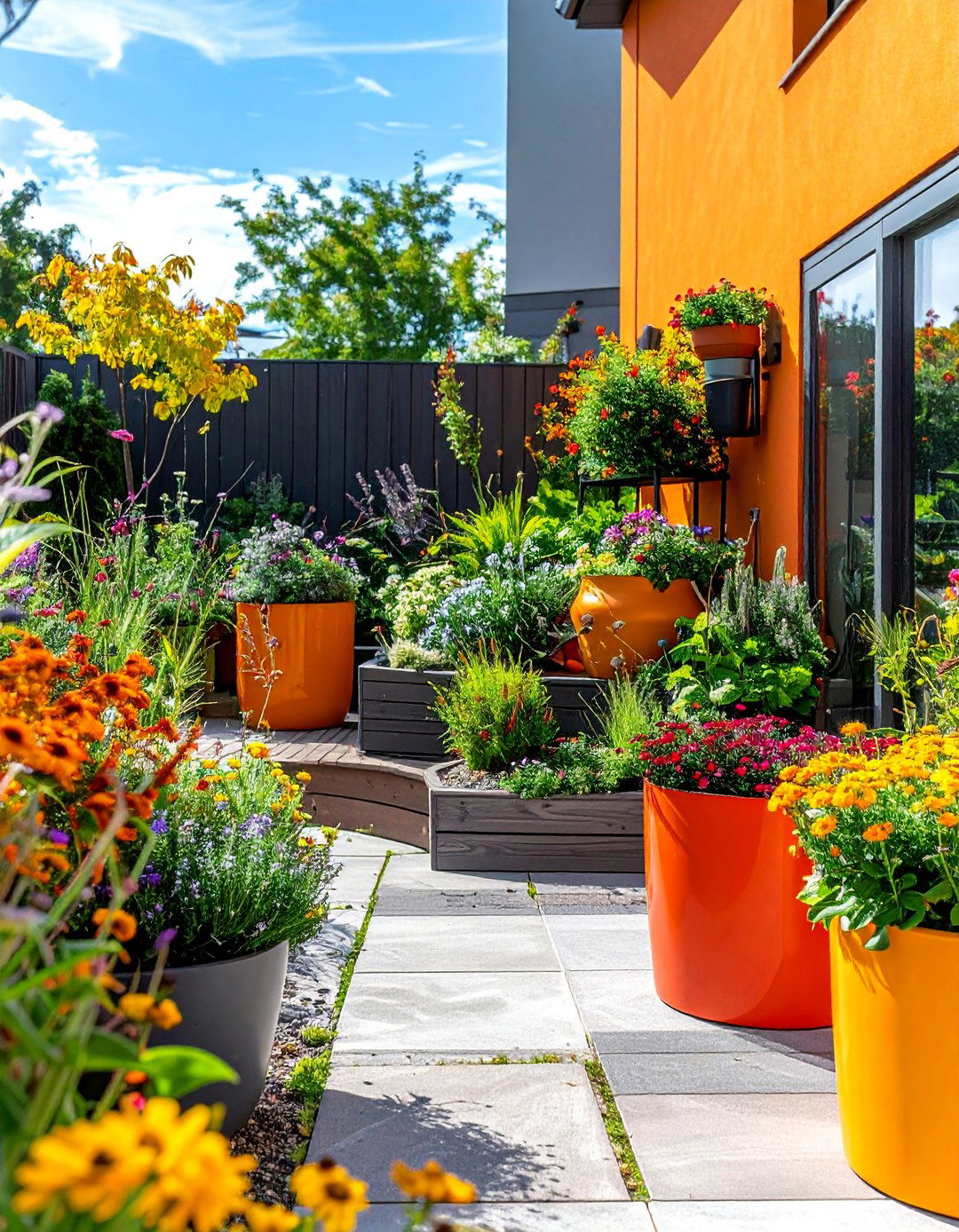
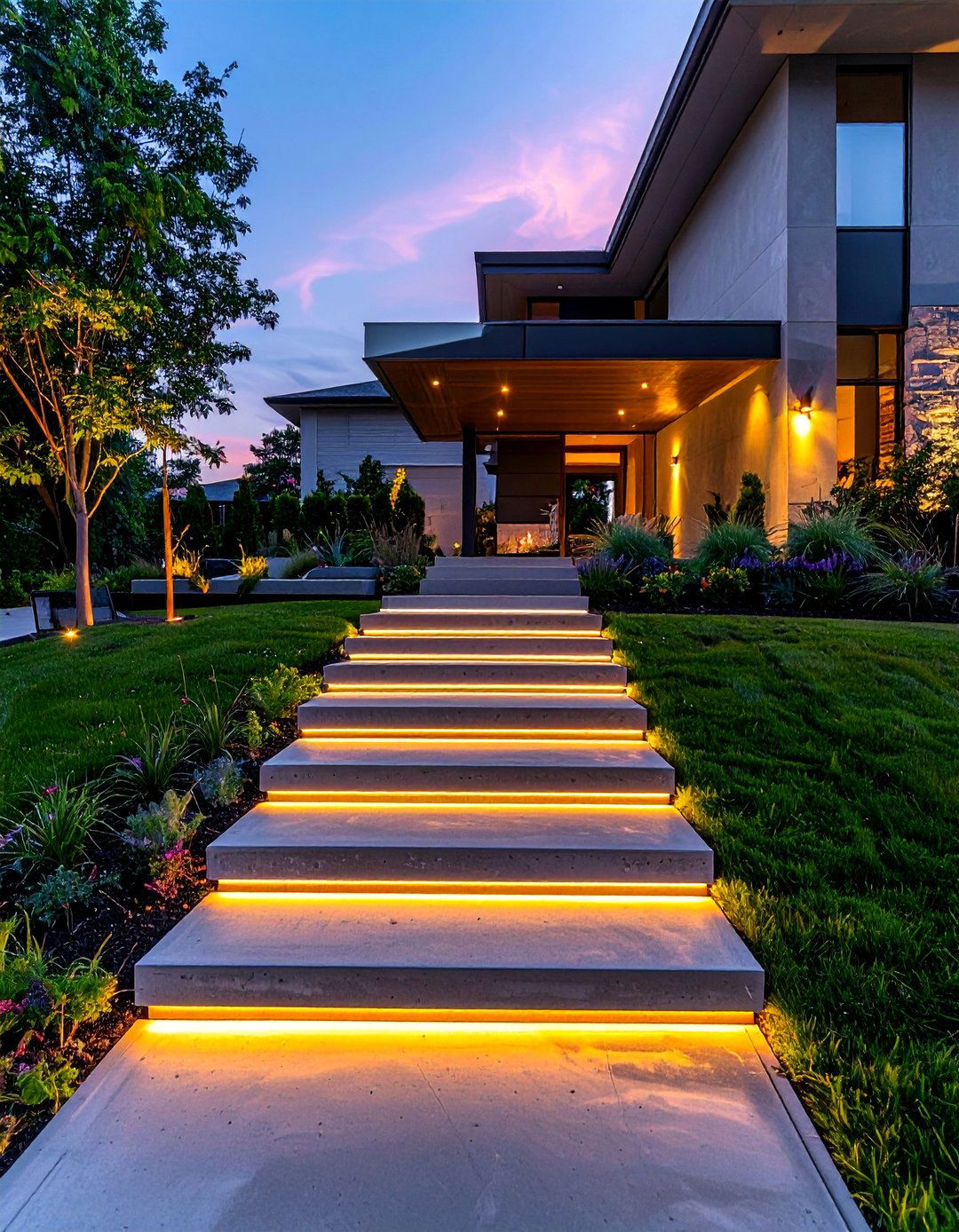
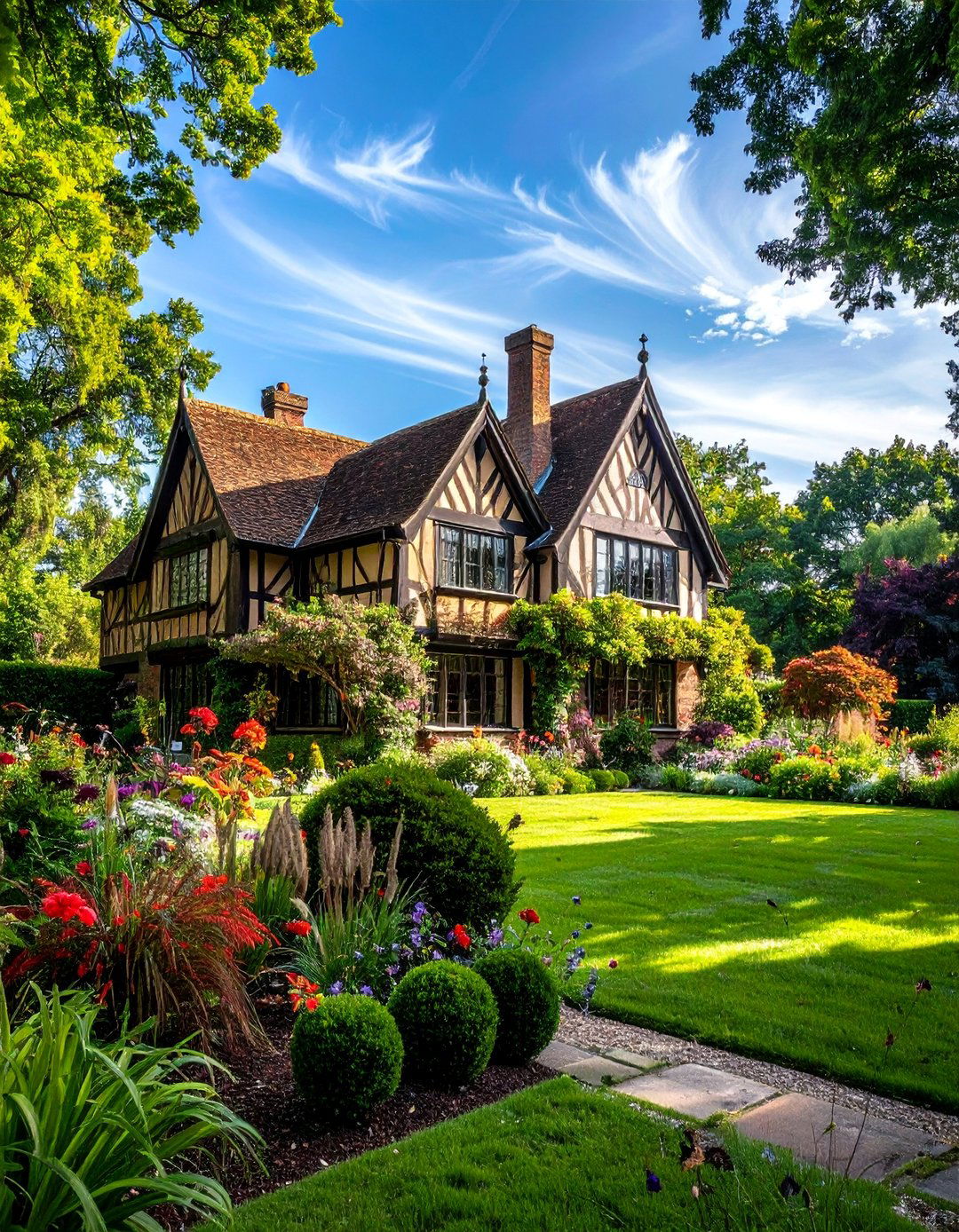
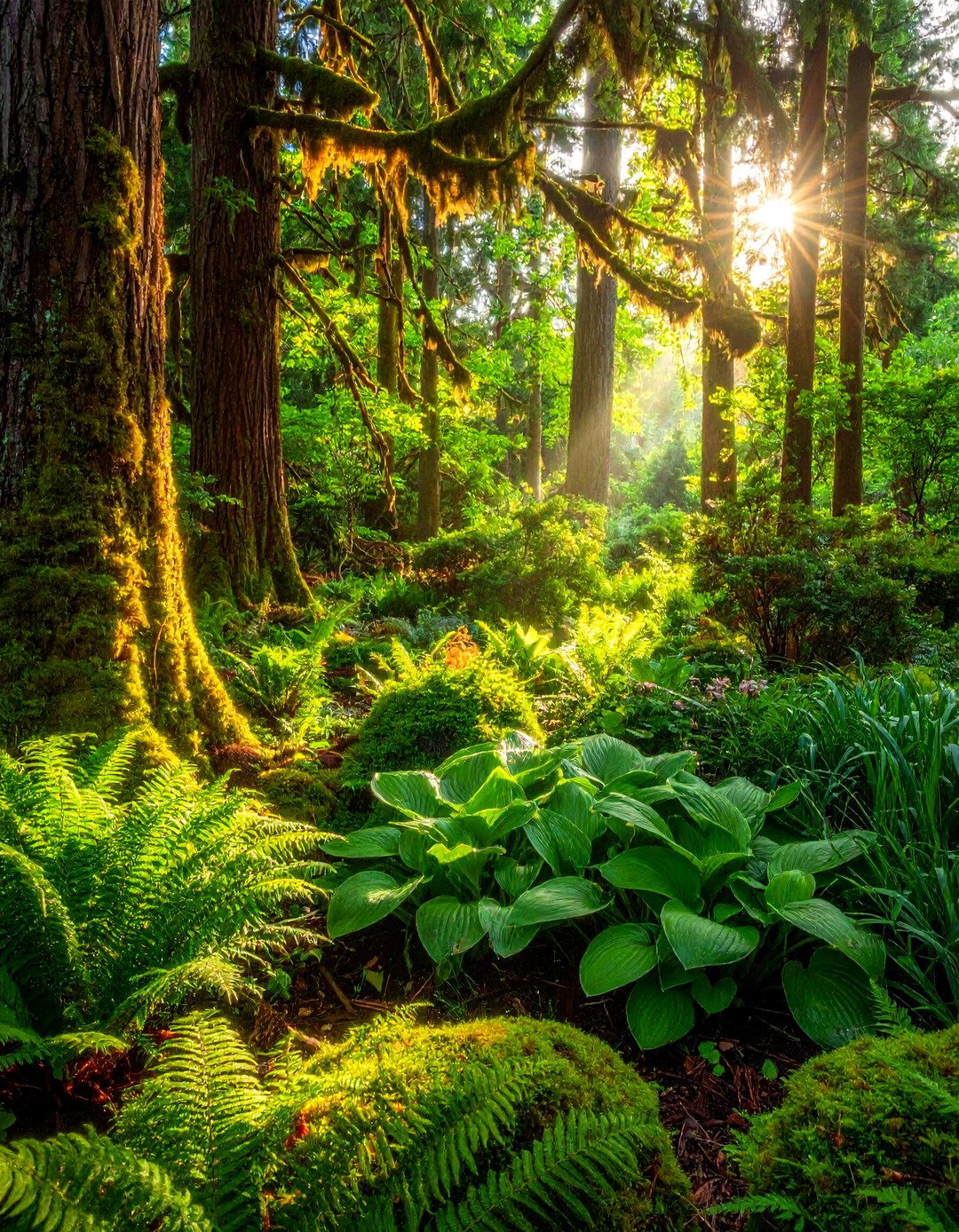
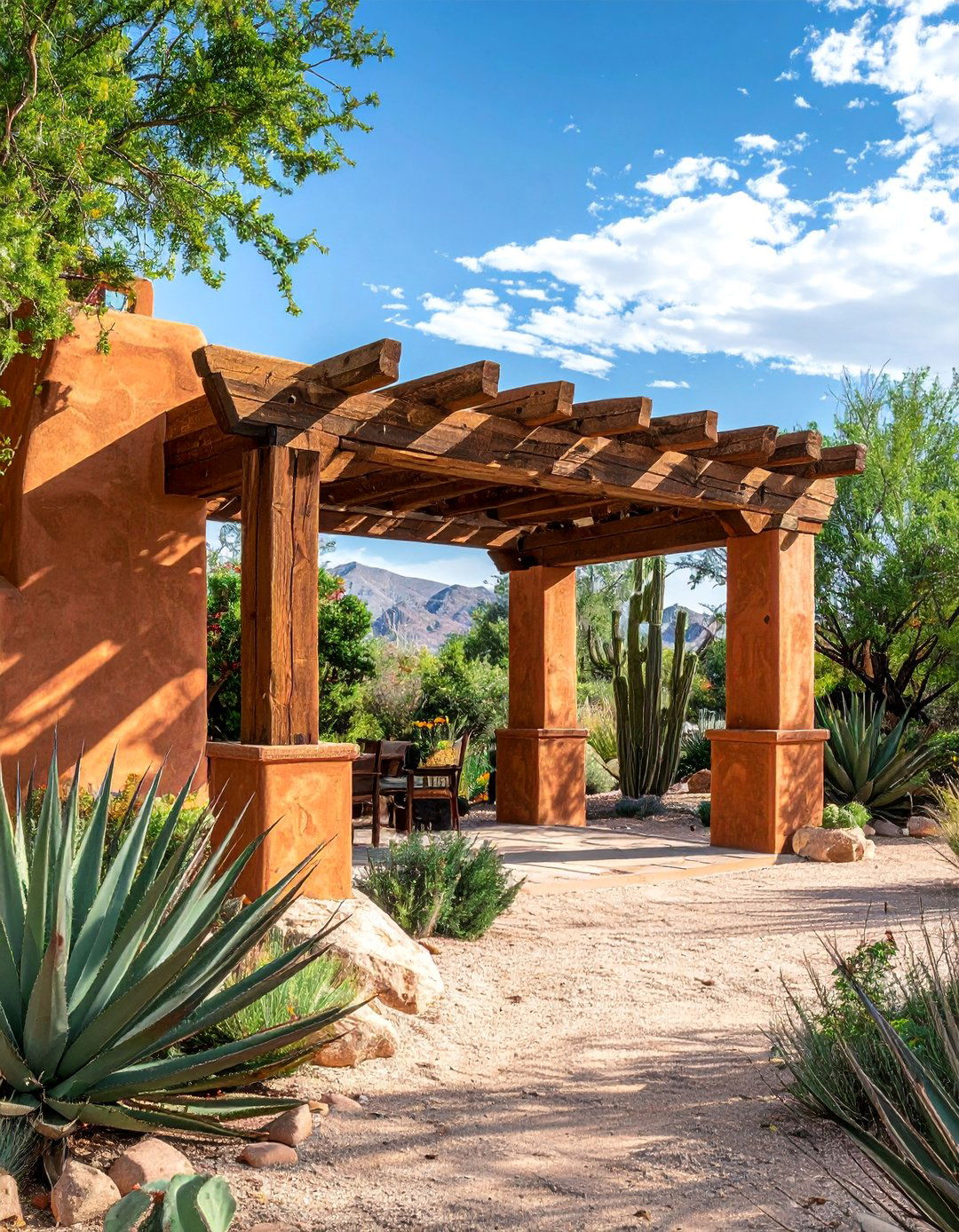
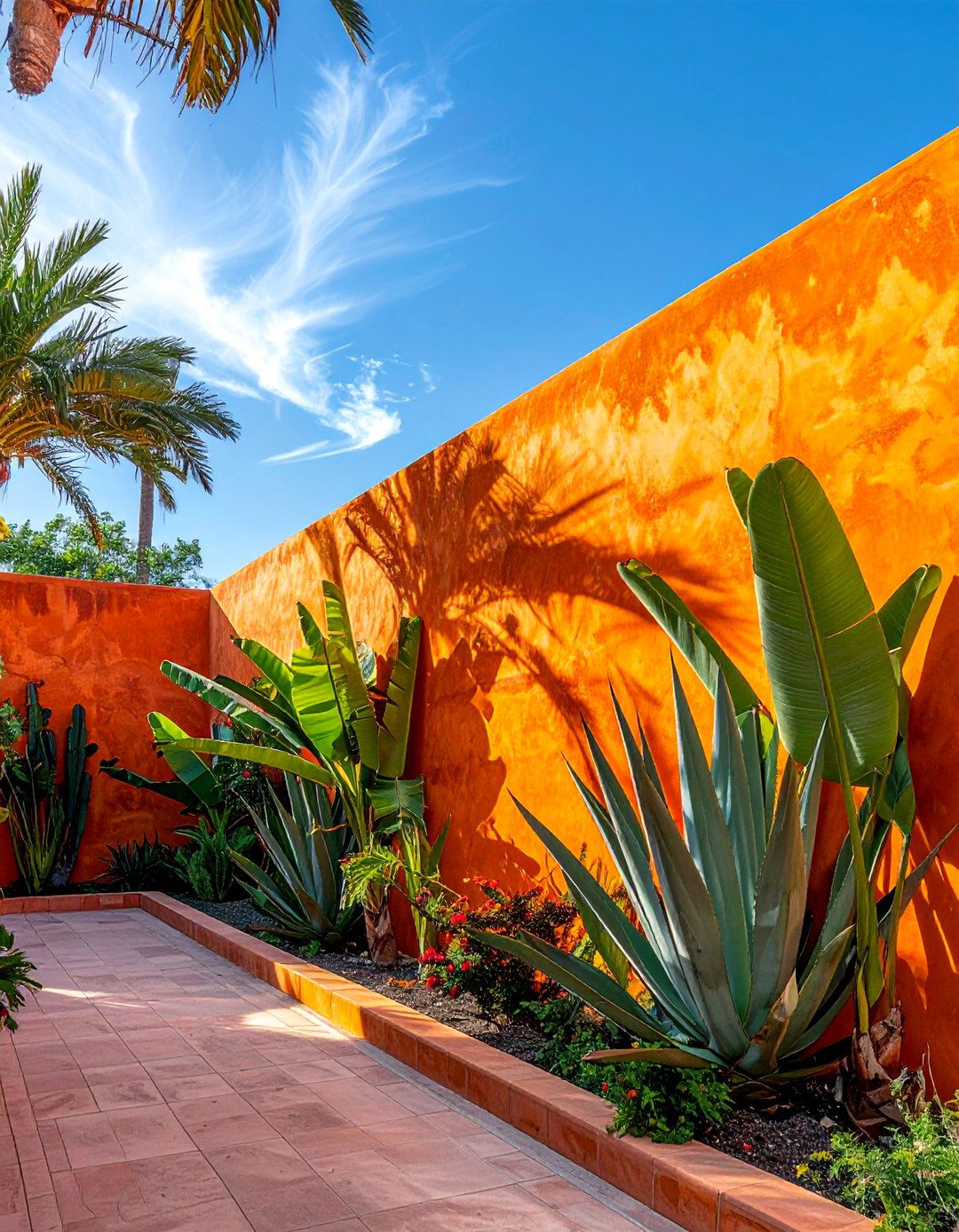
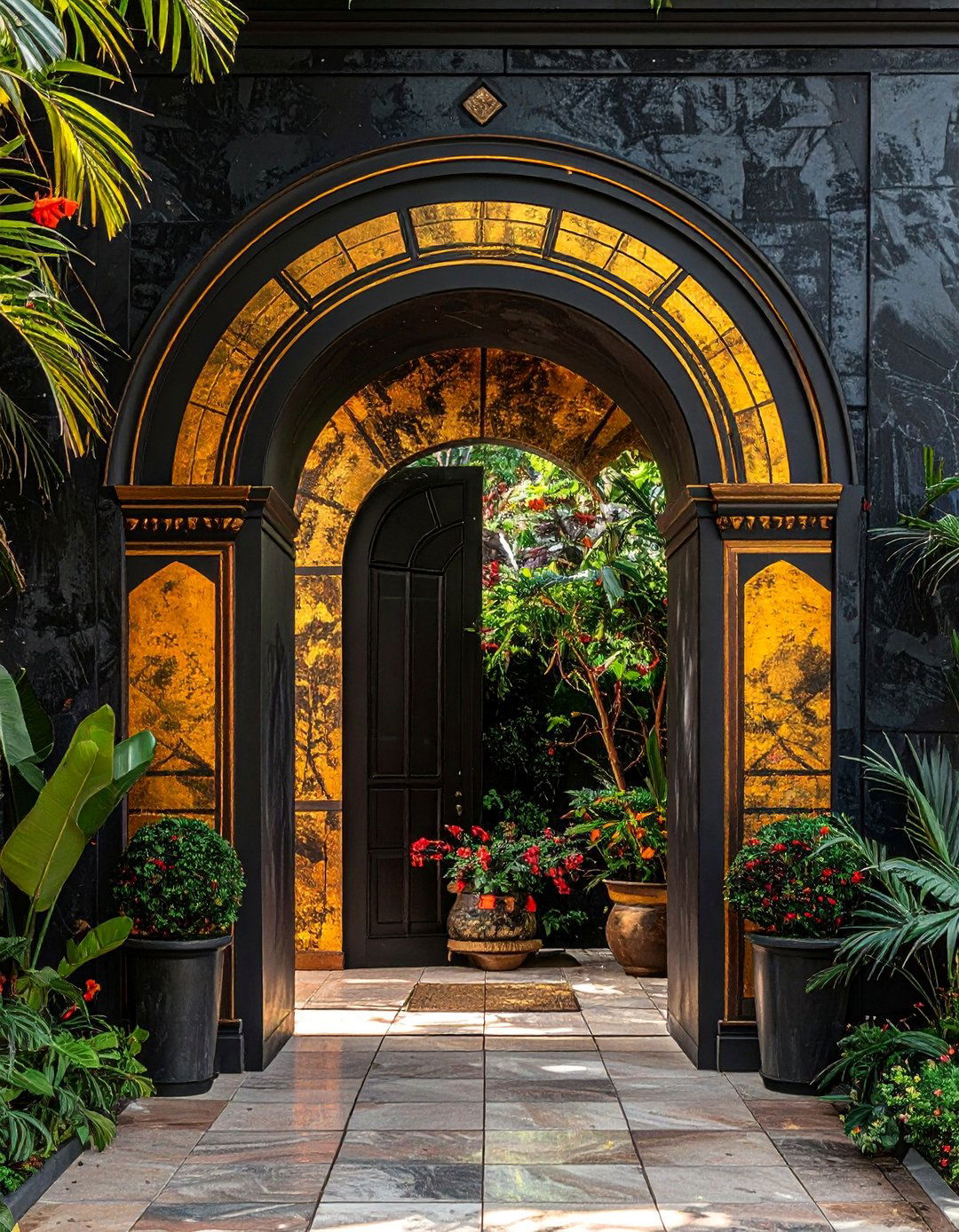
Leave a Reply